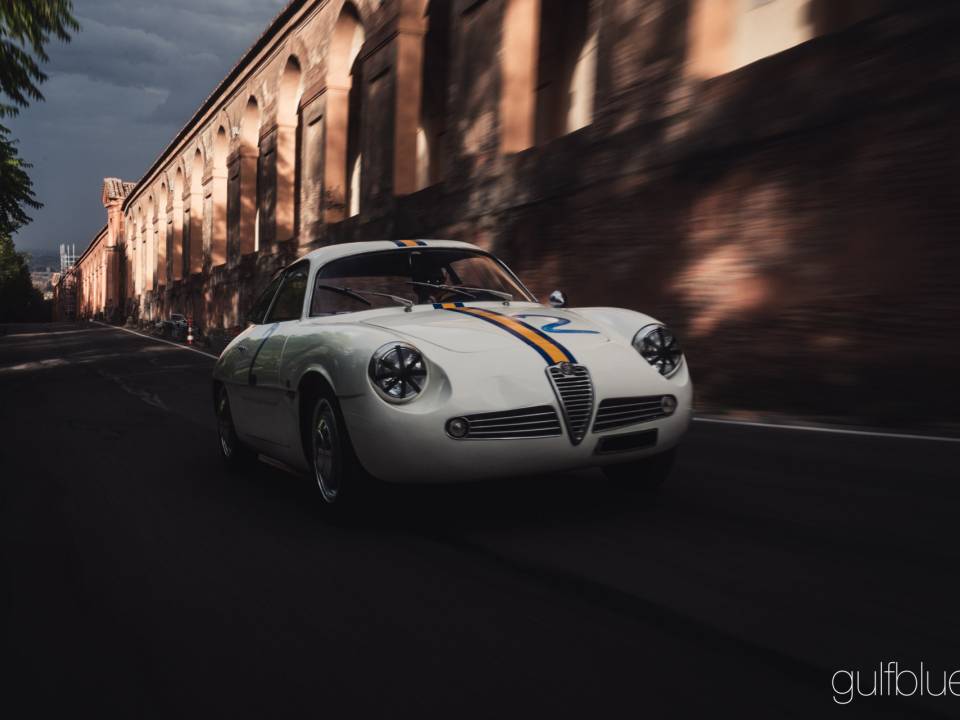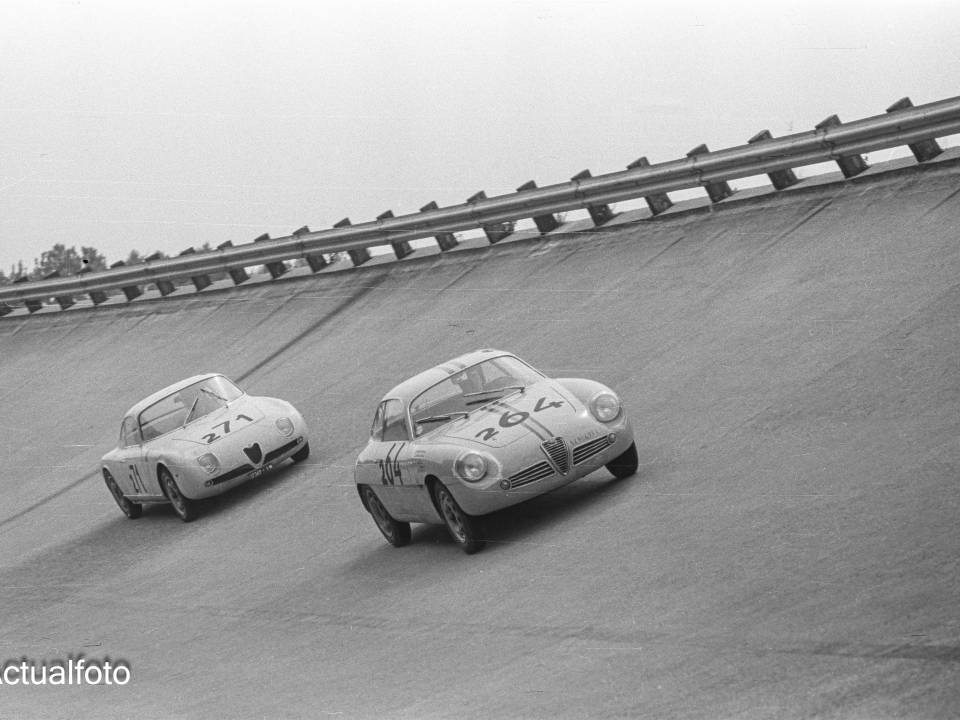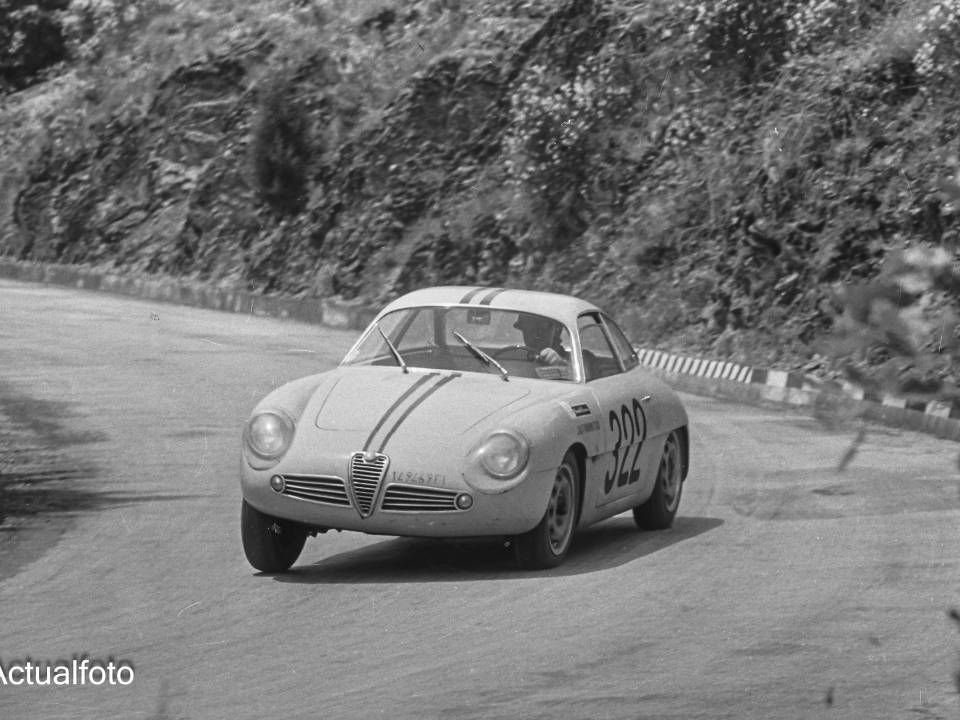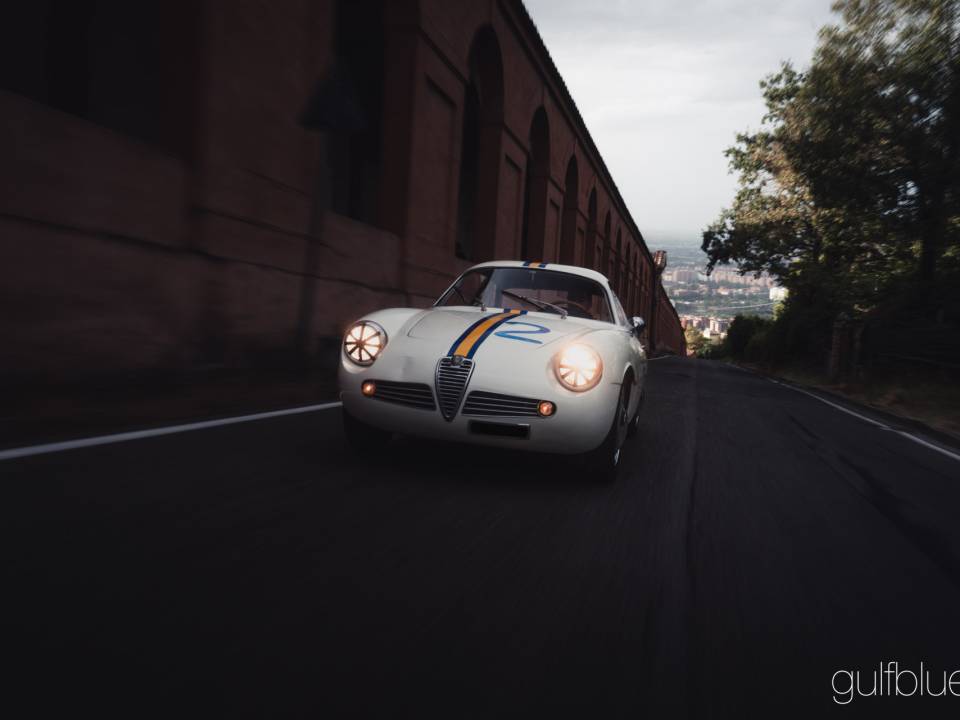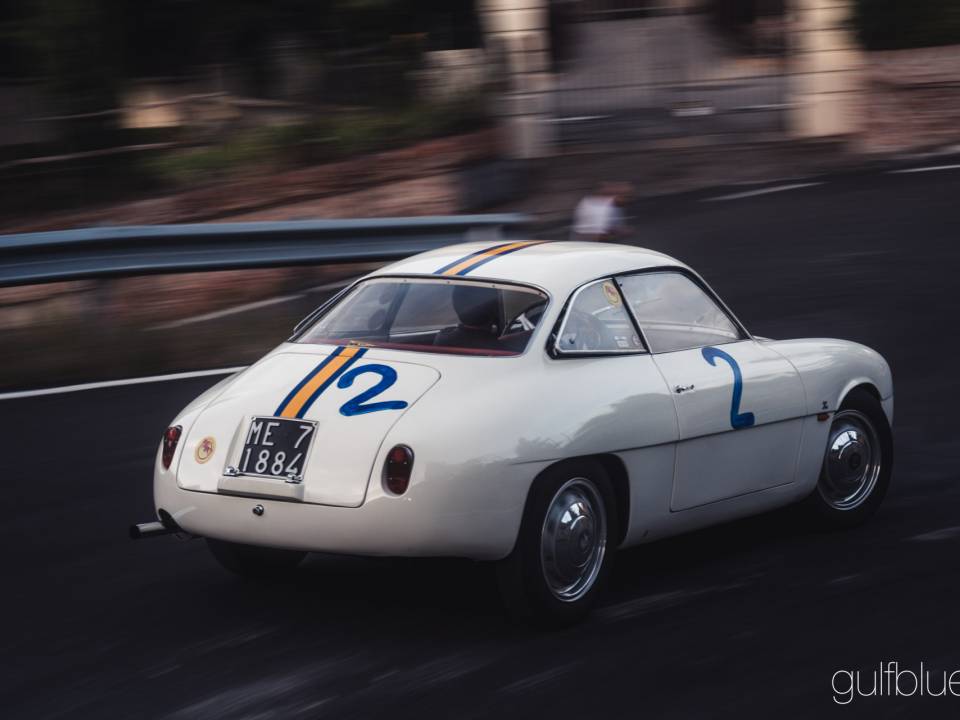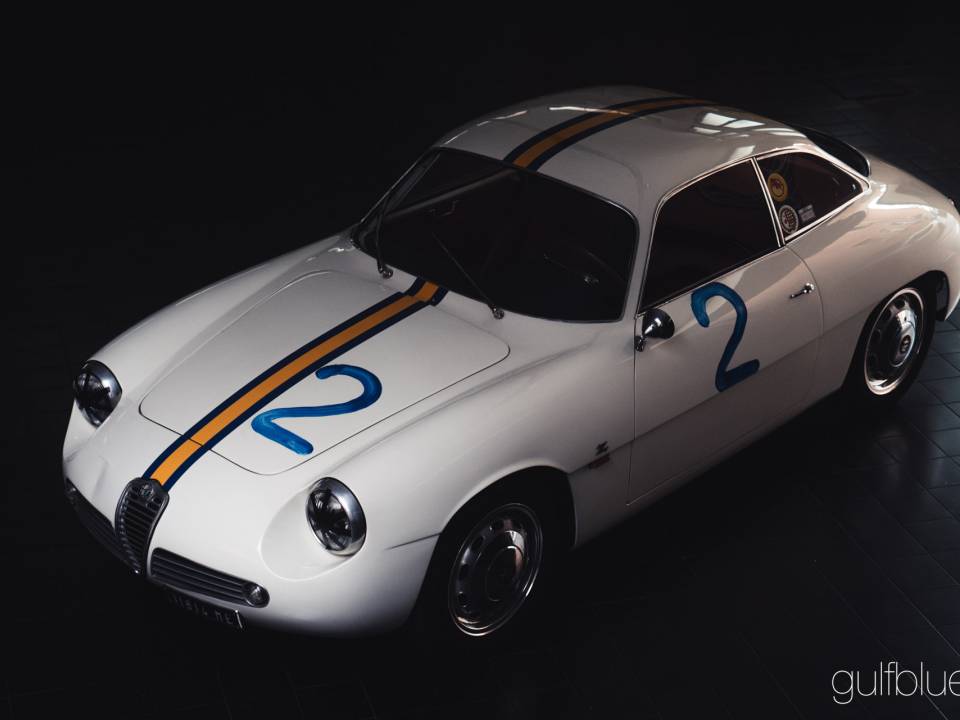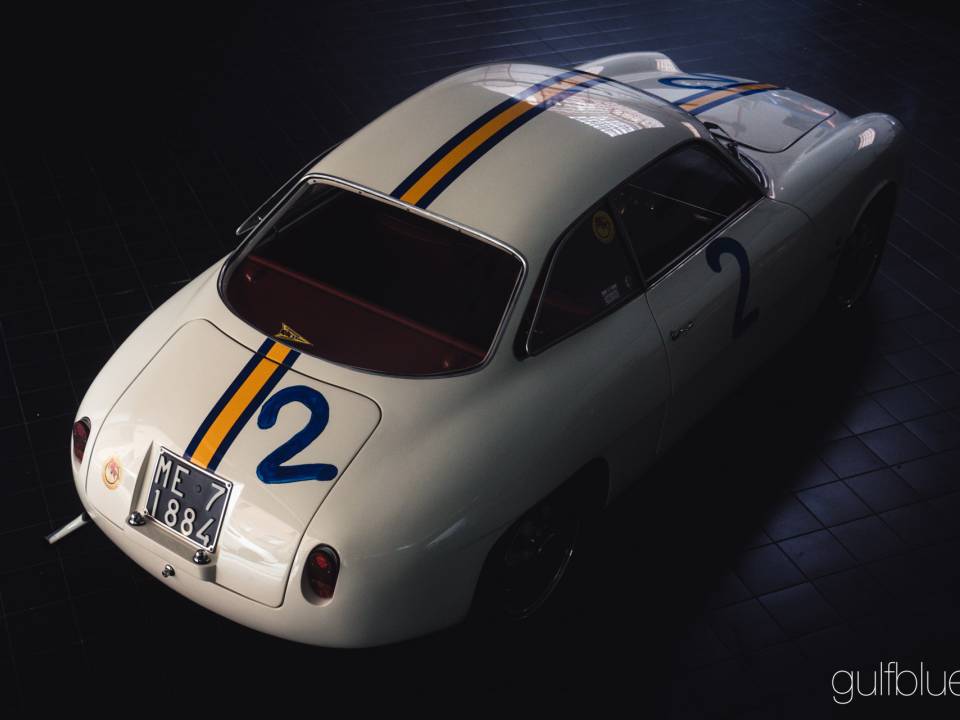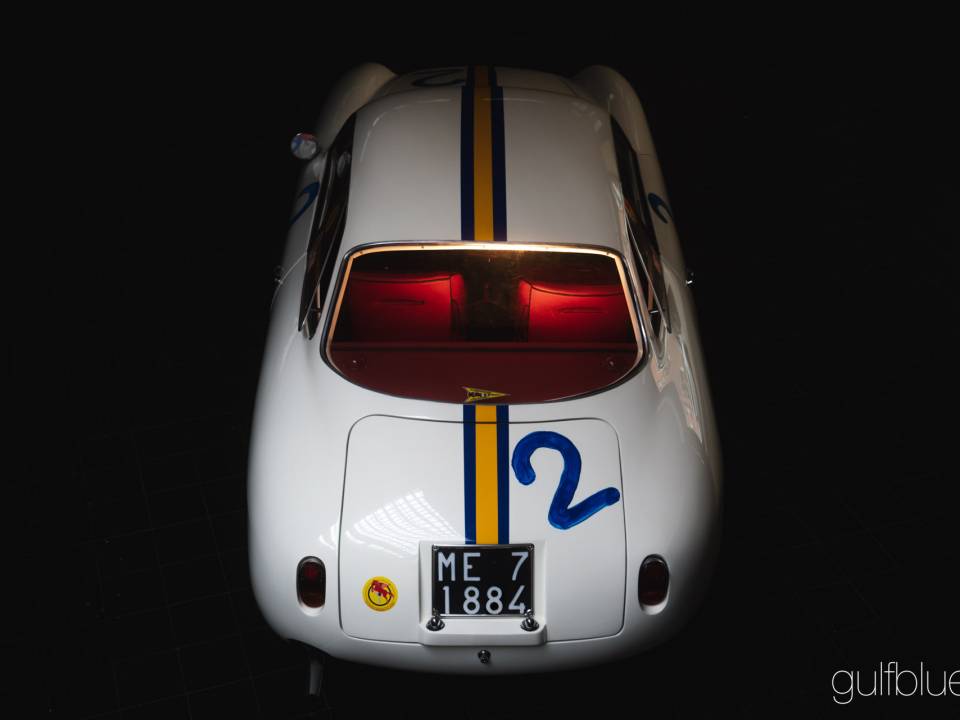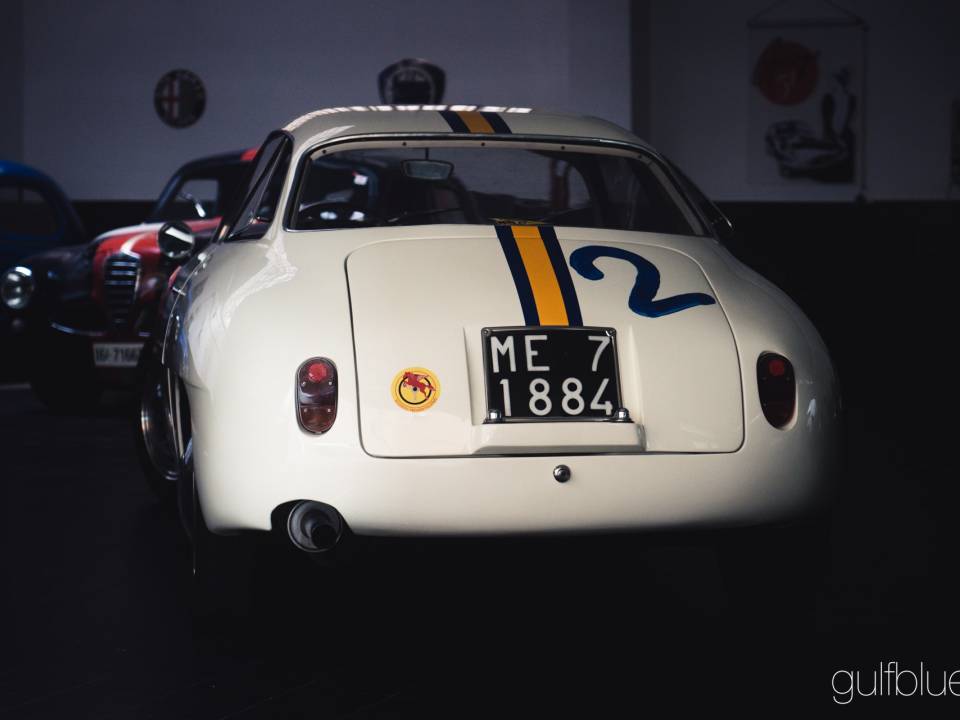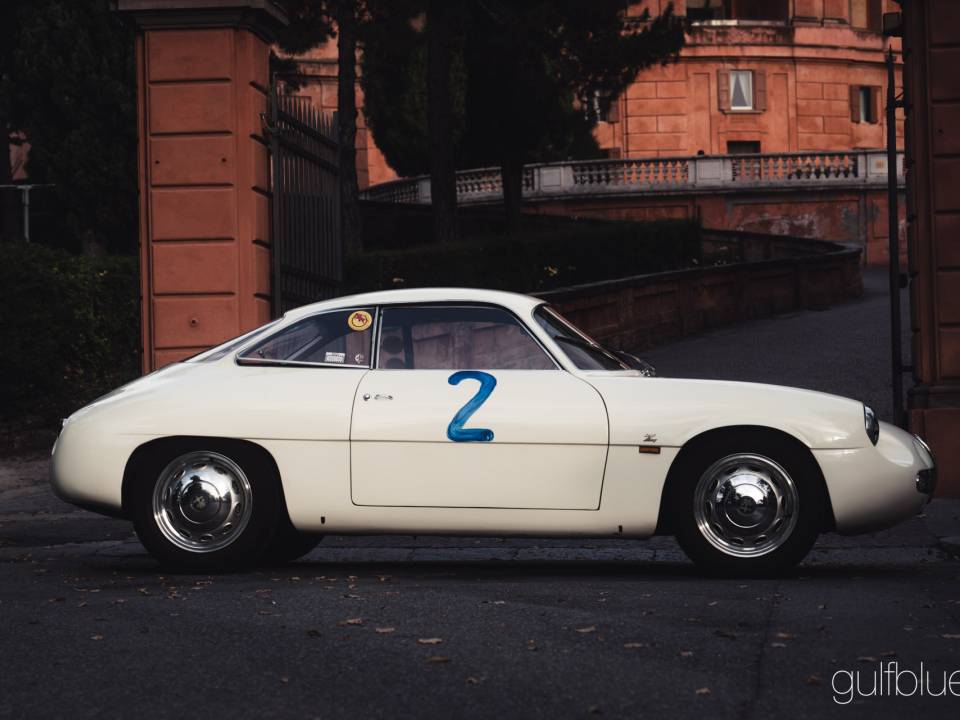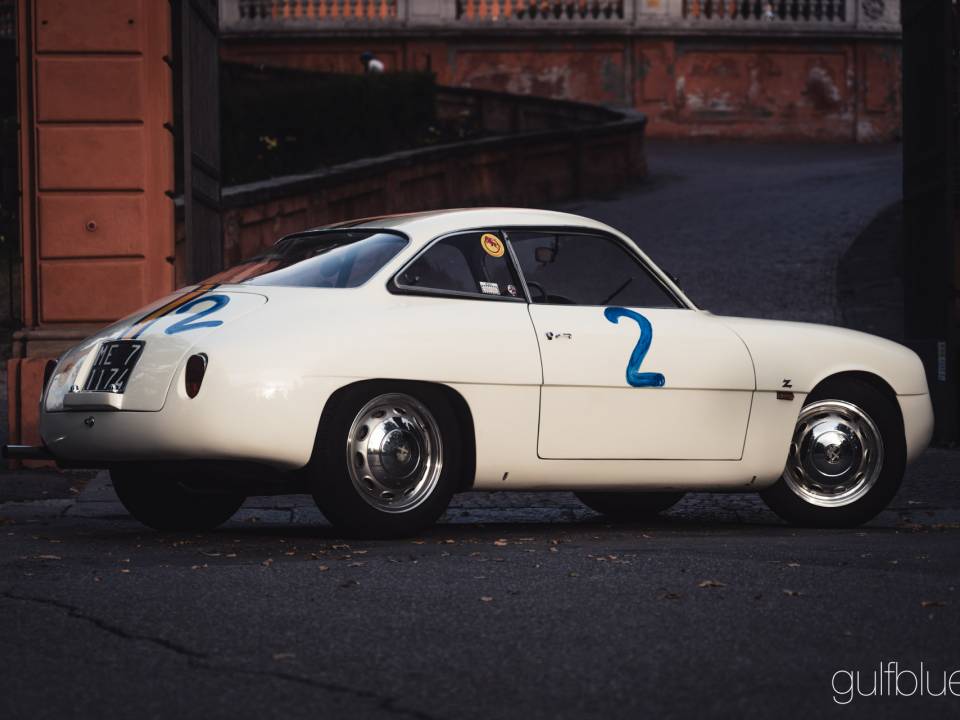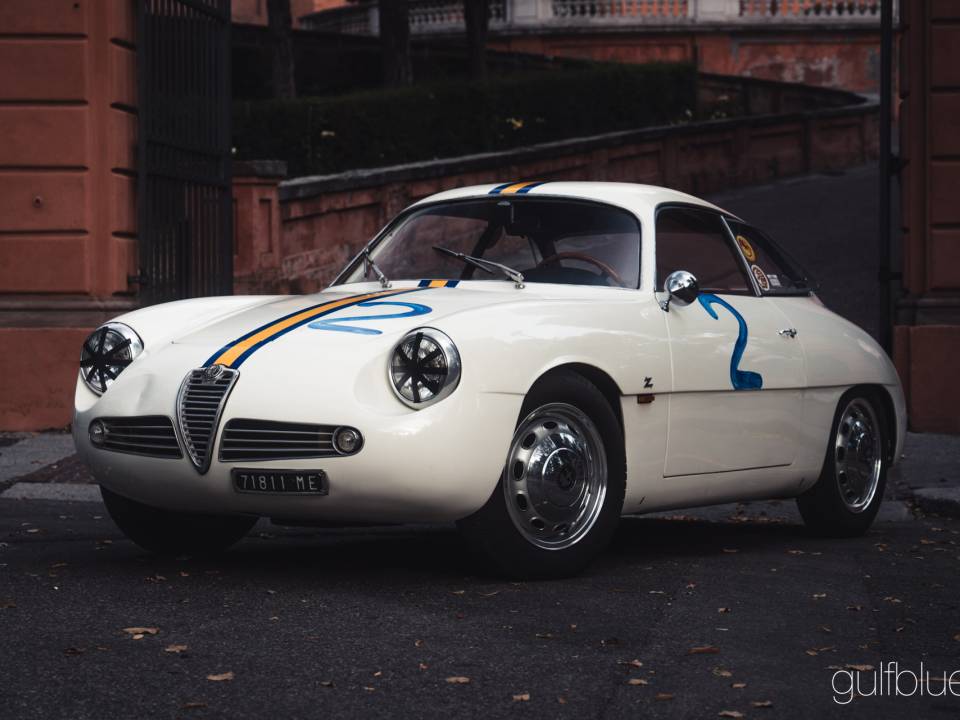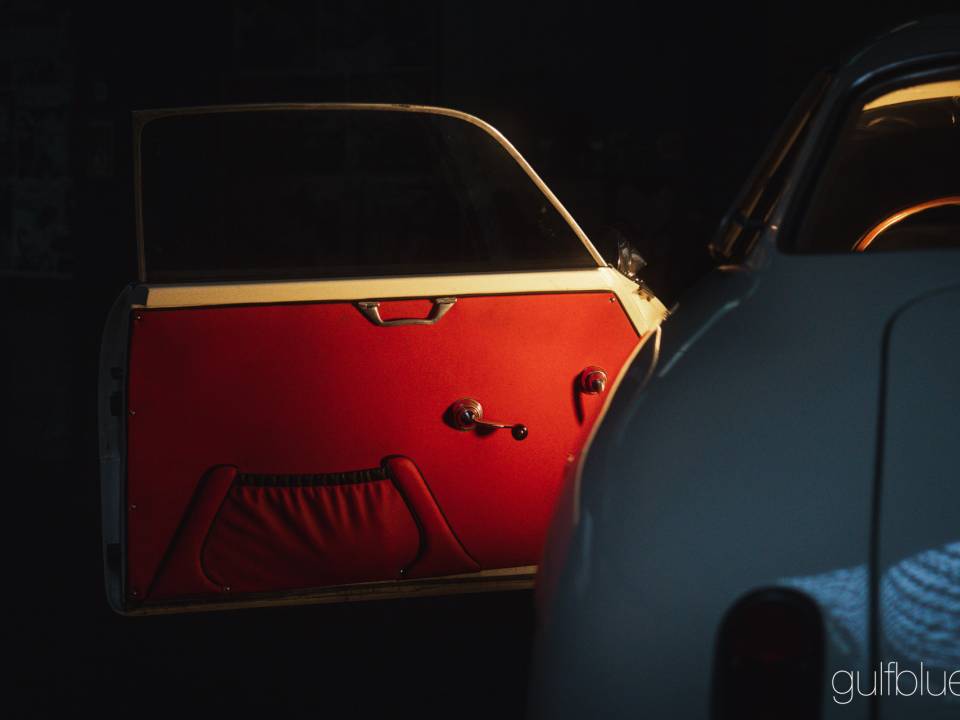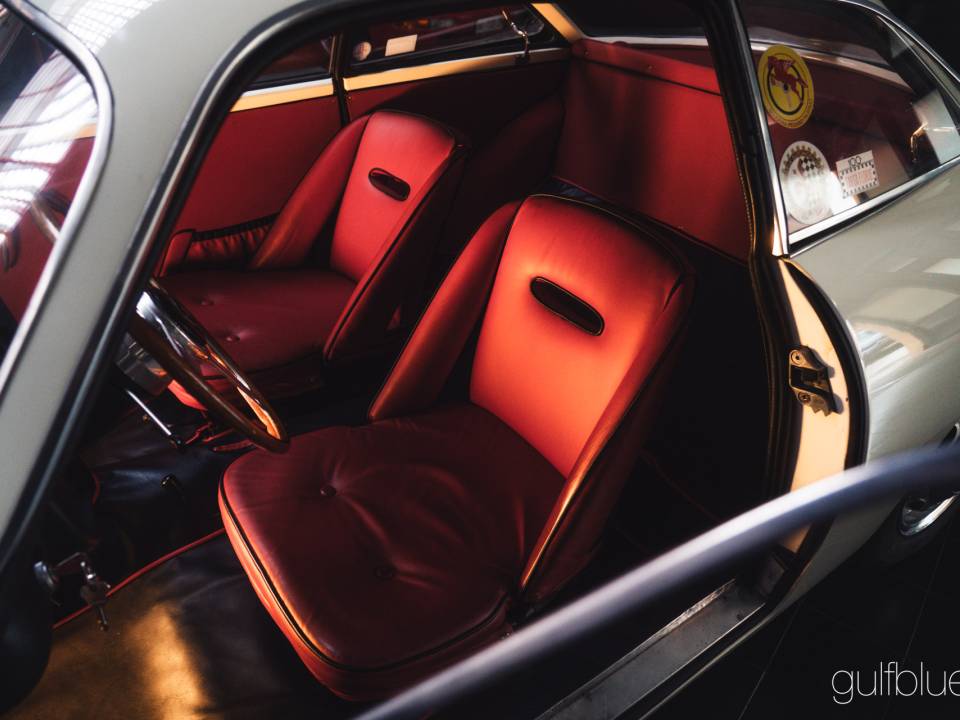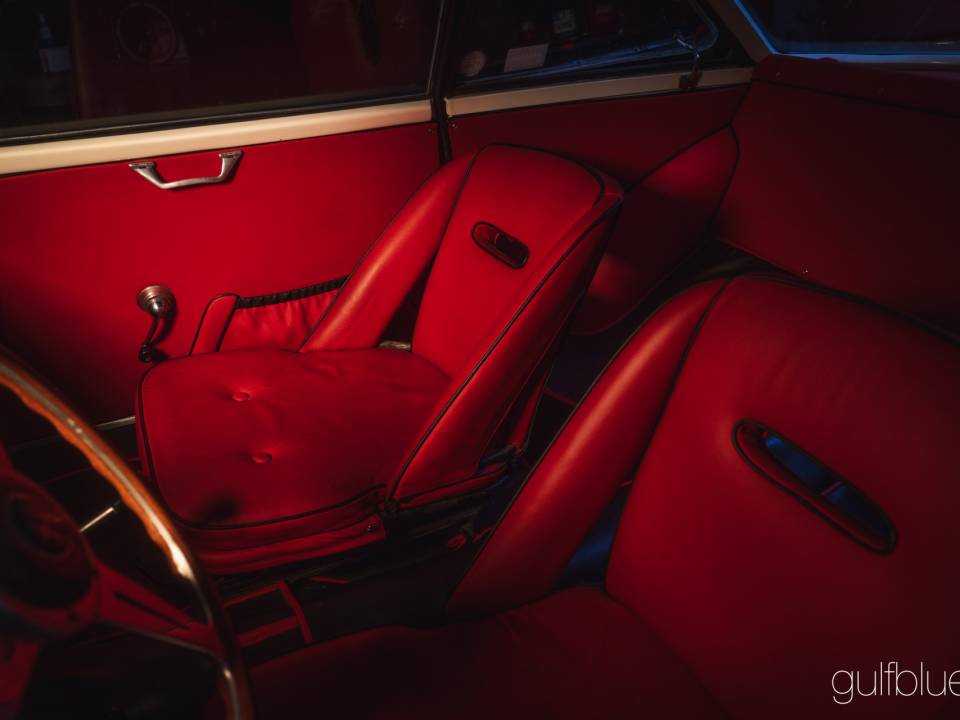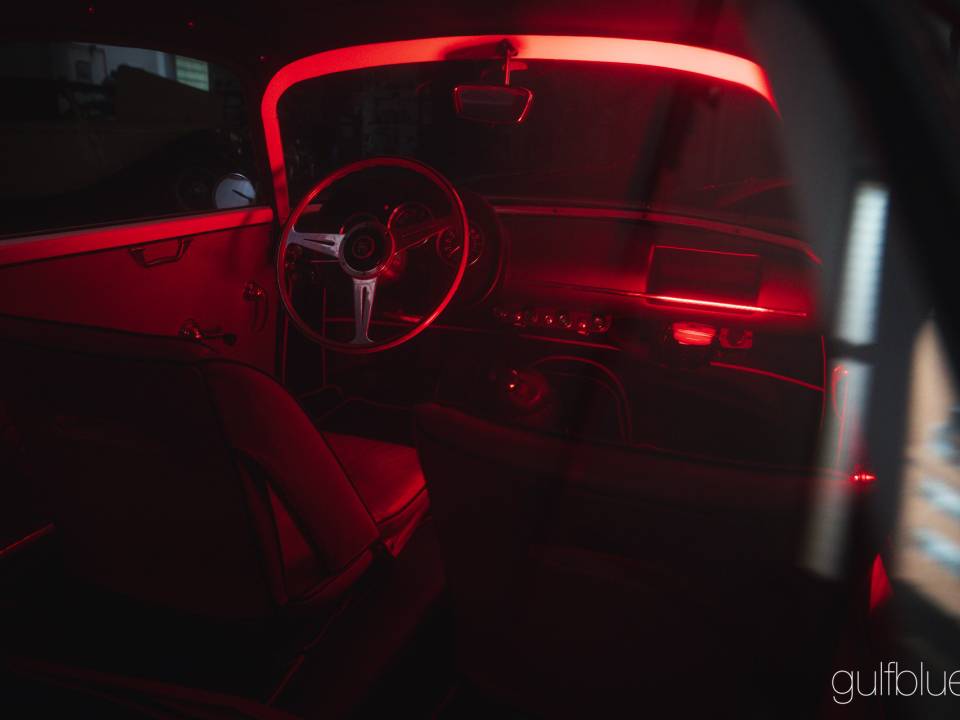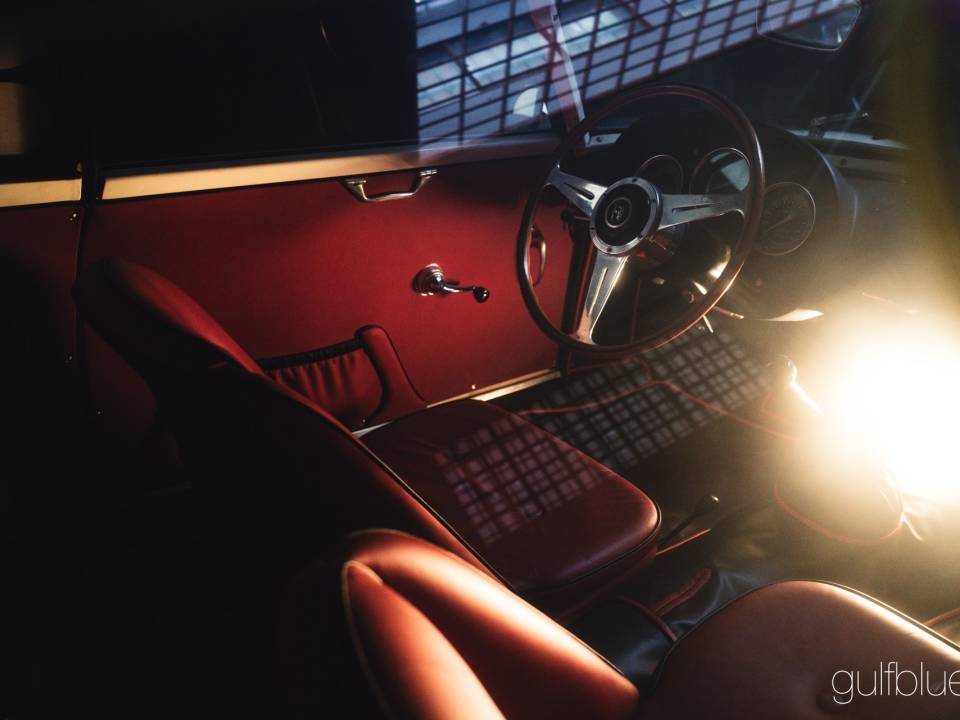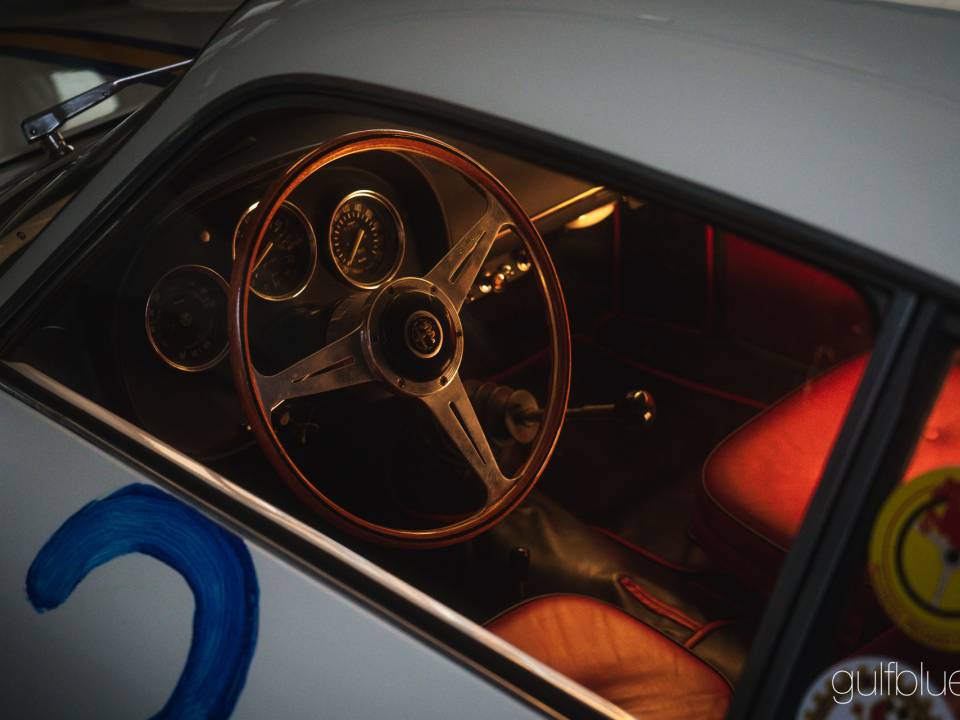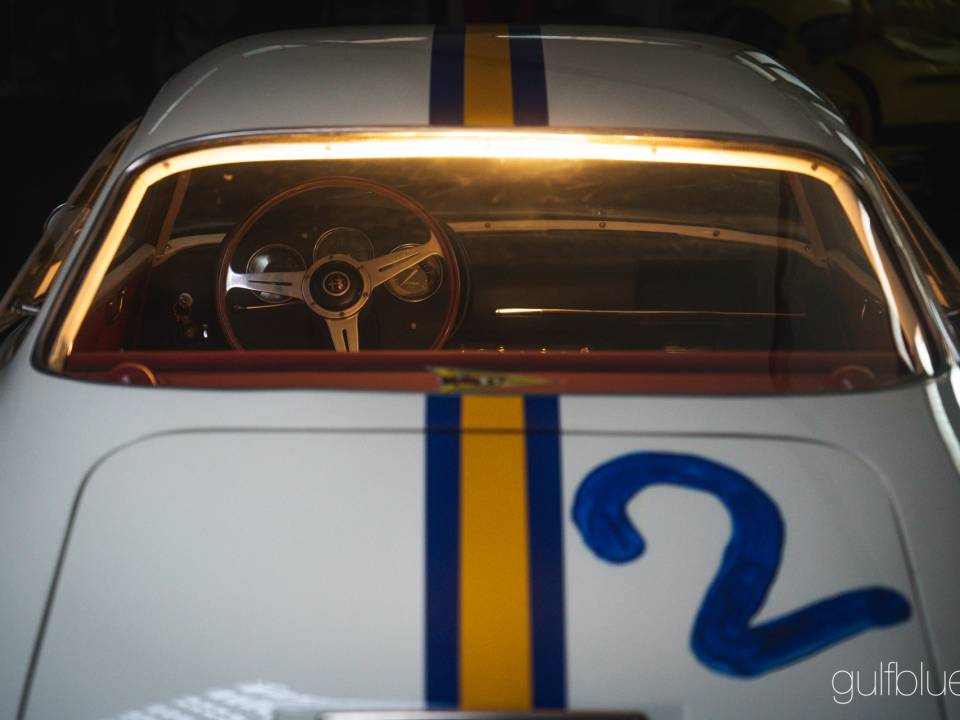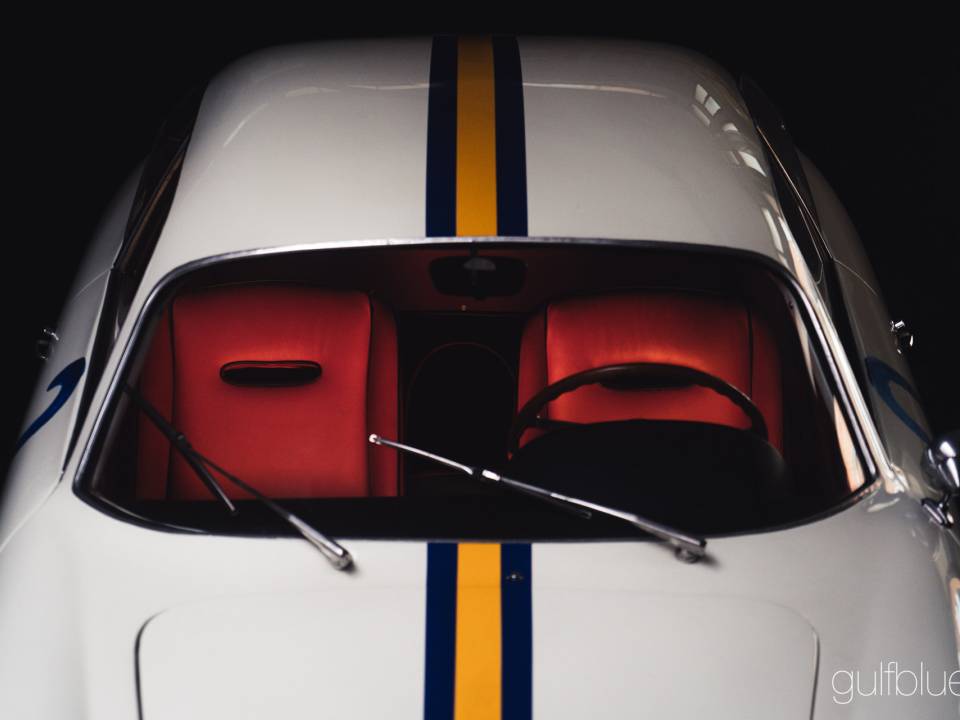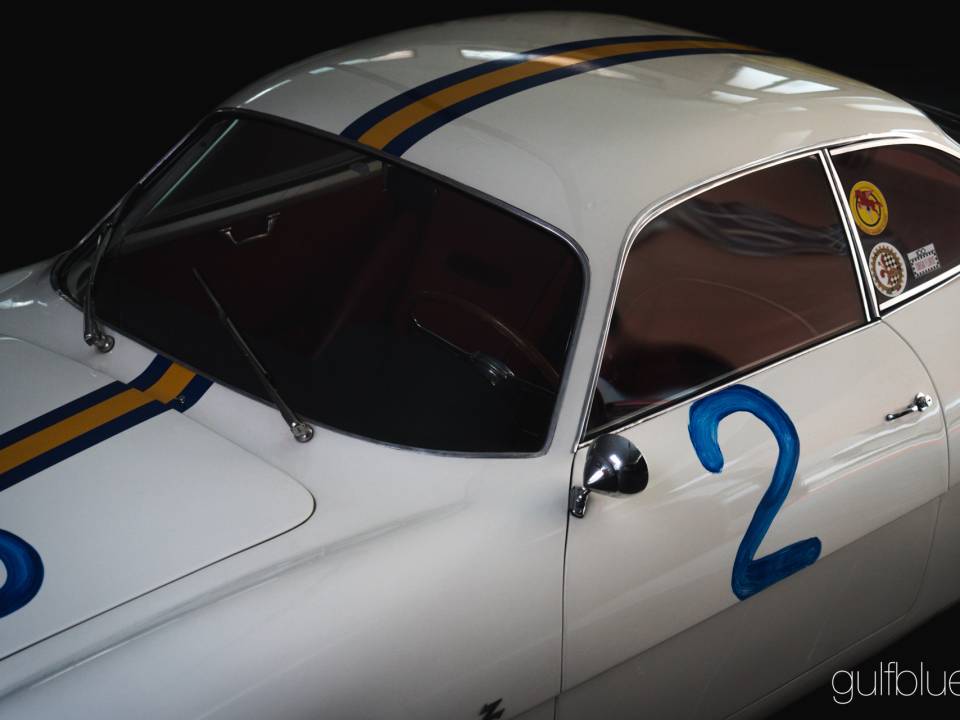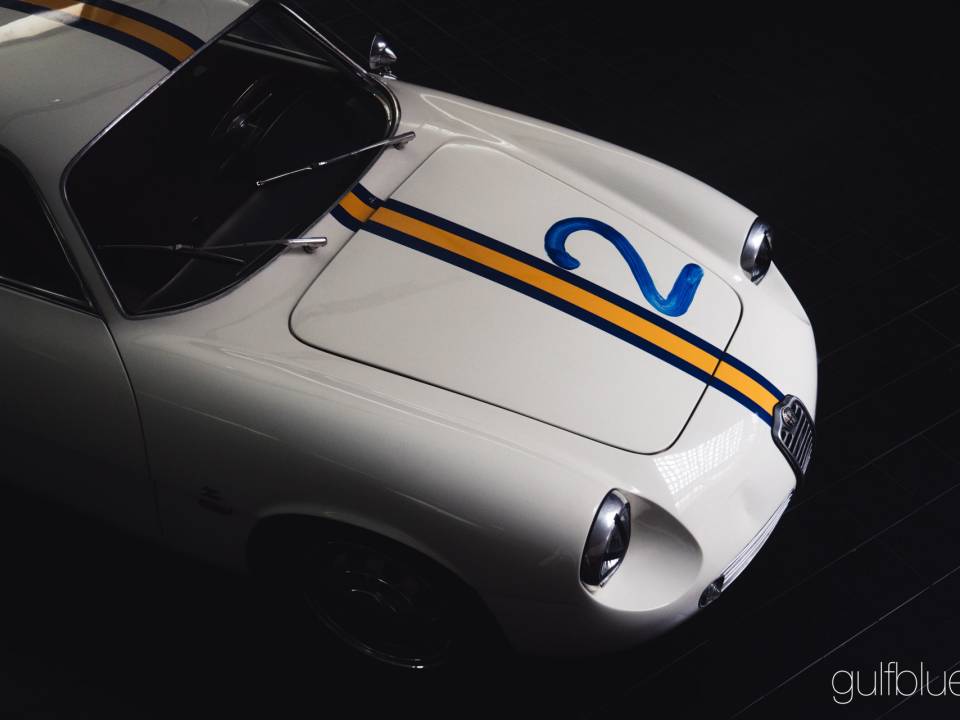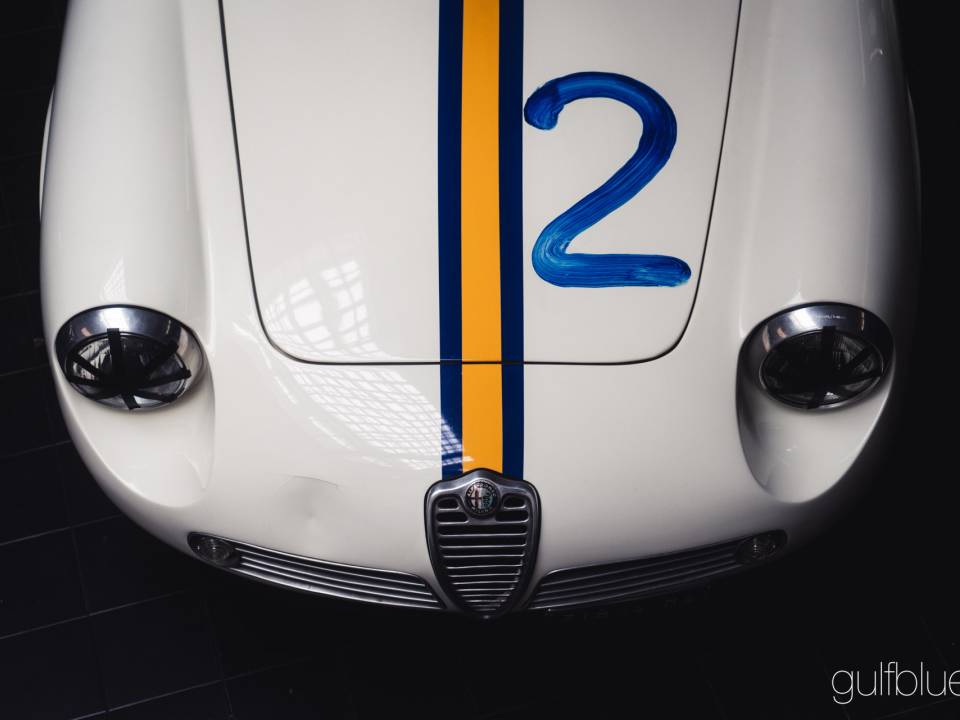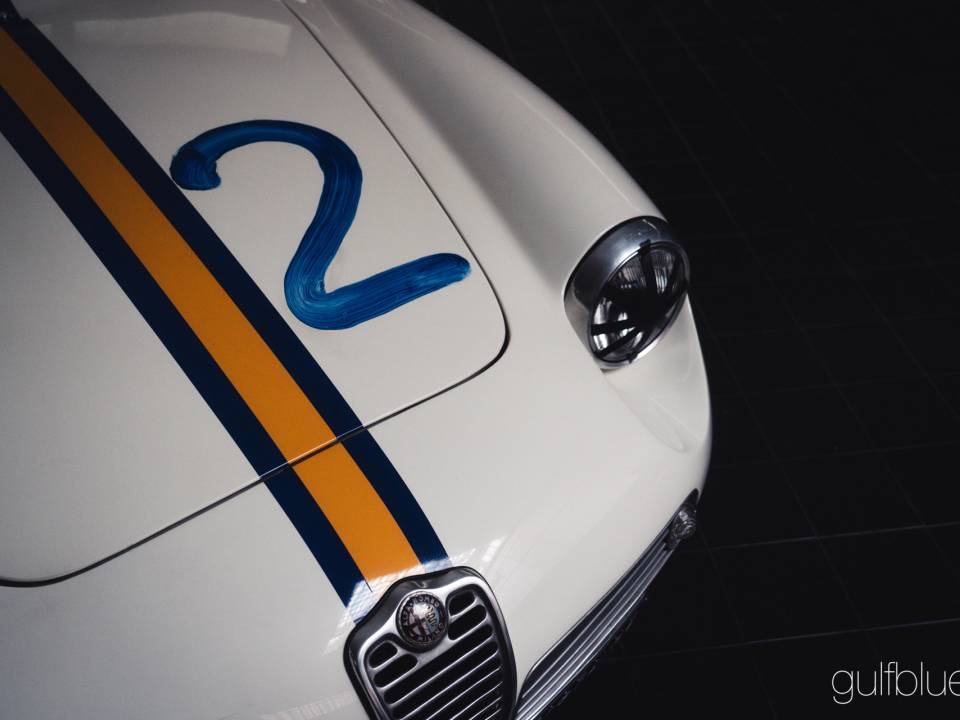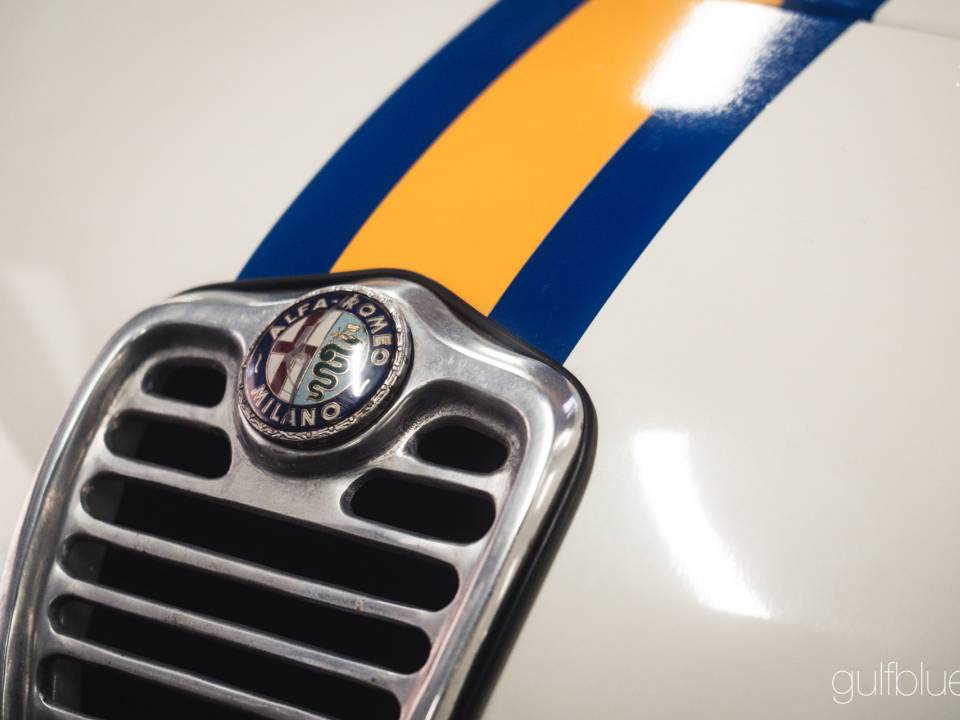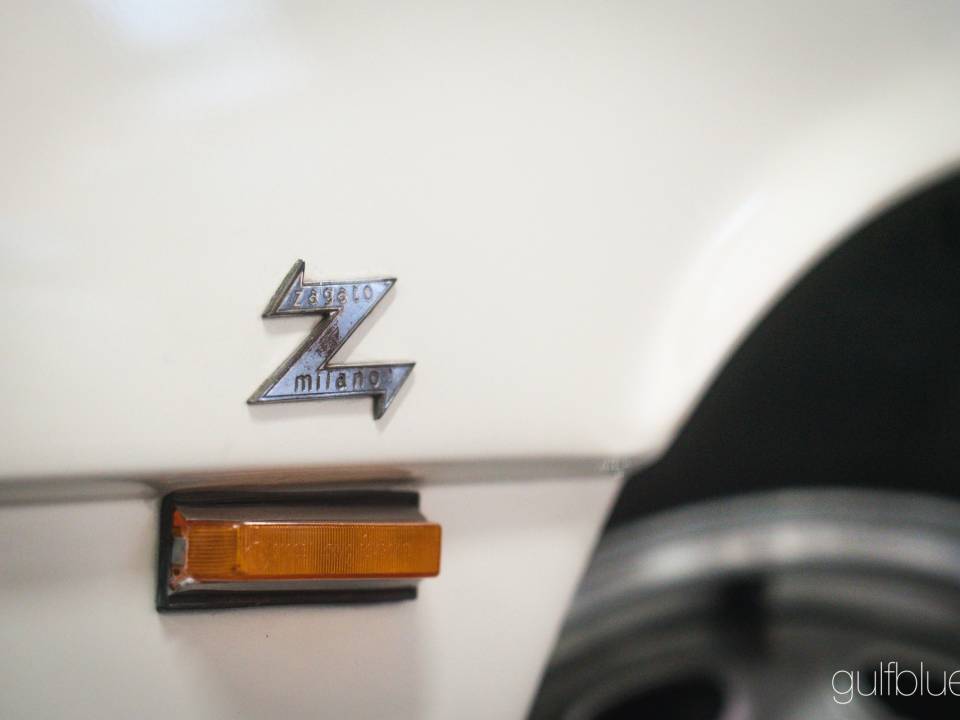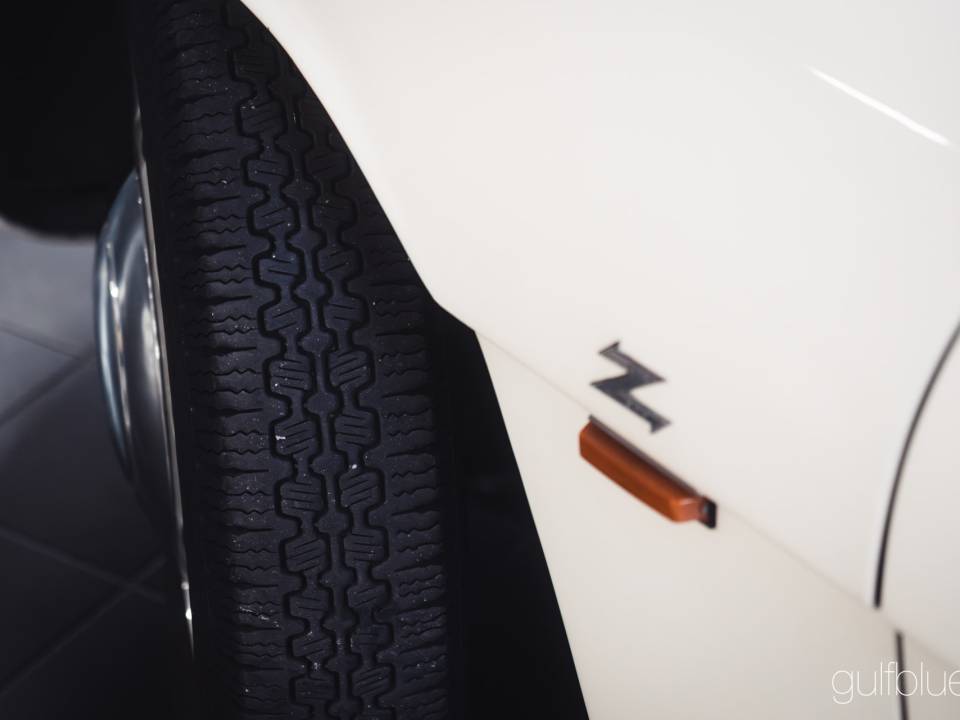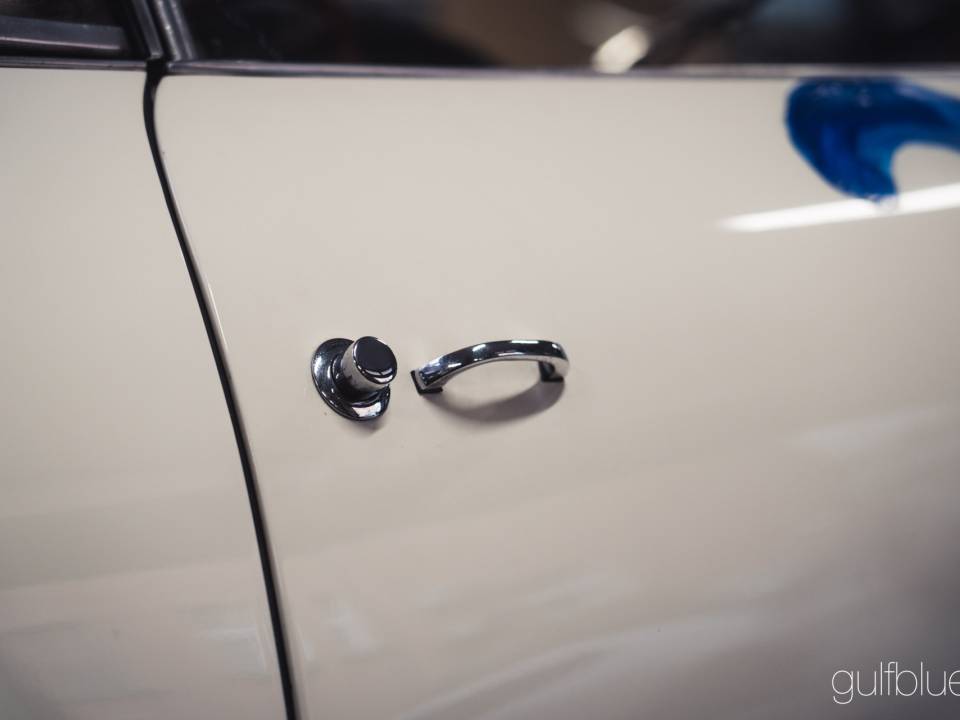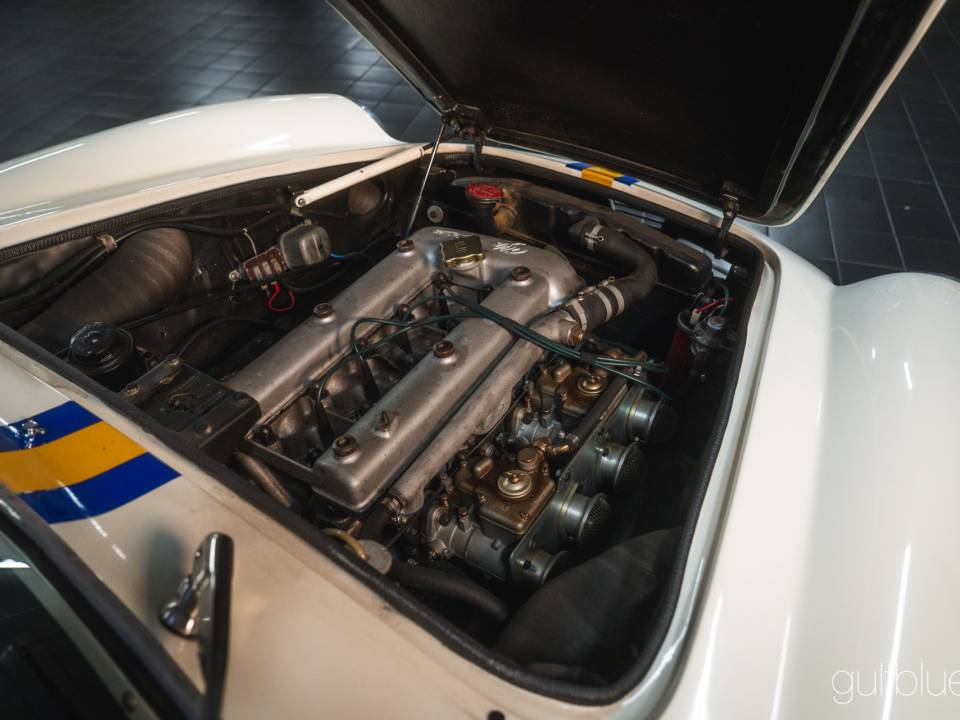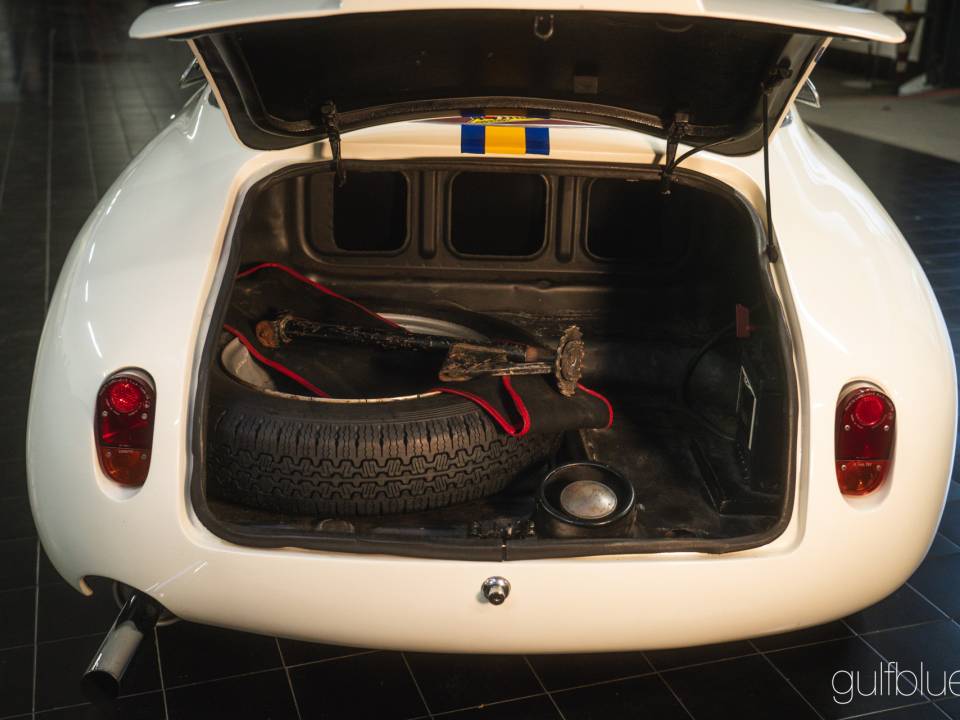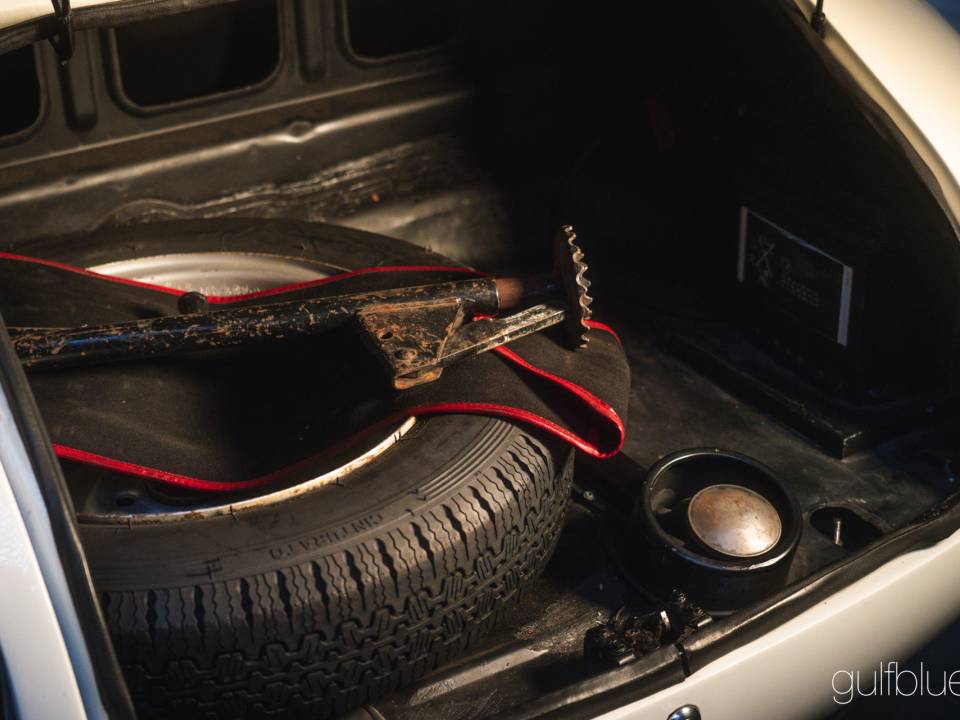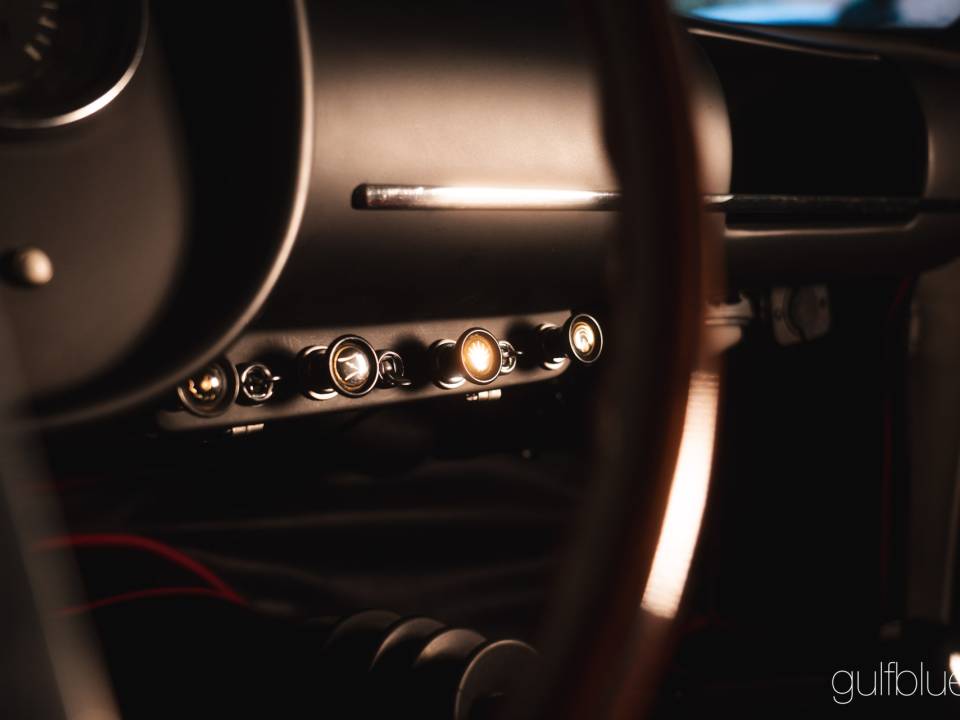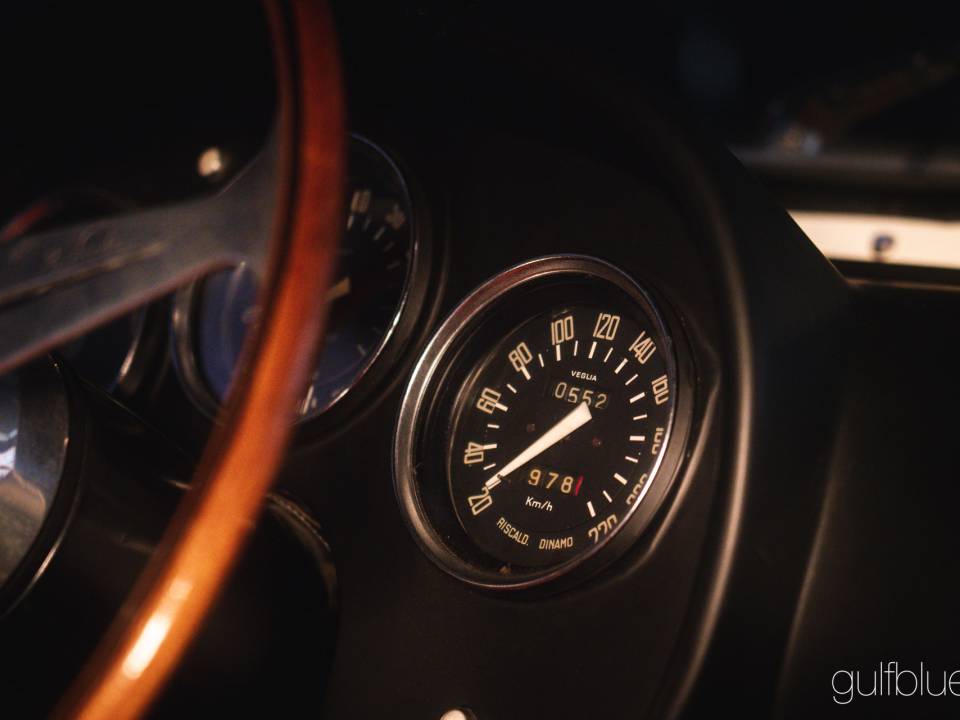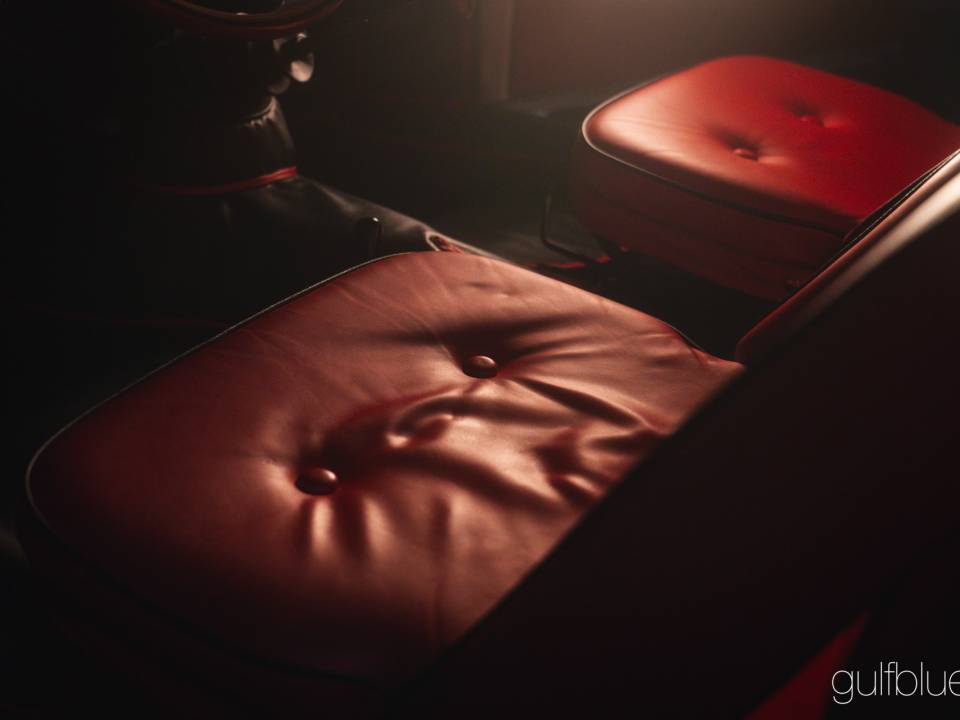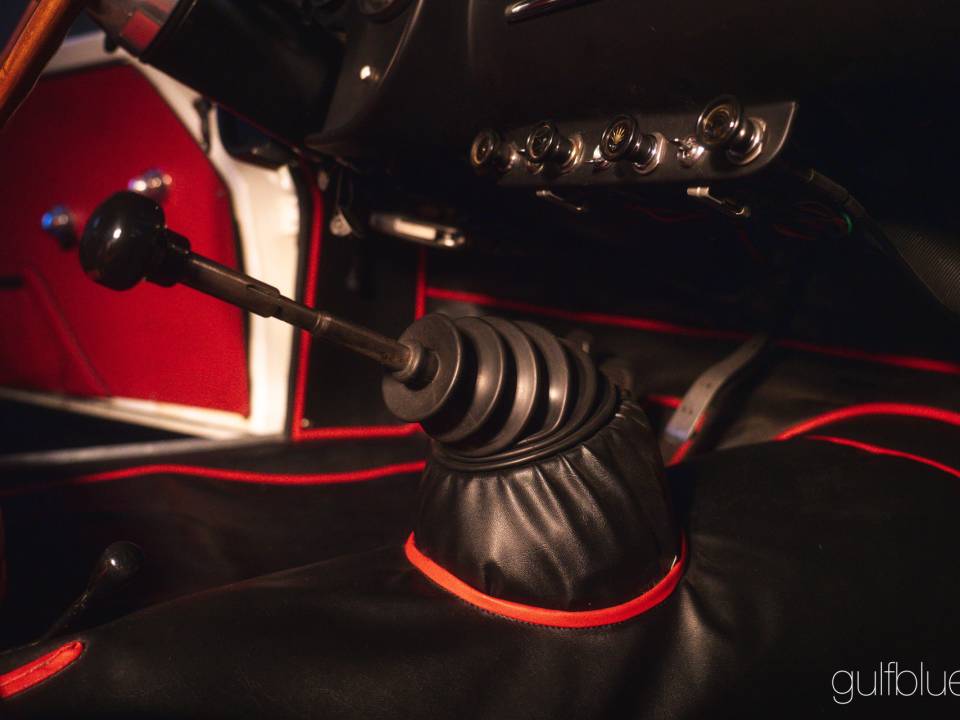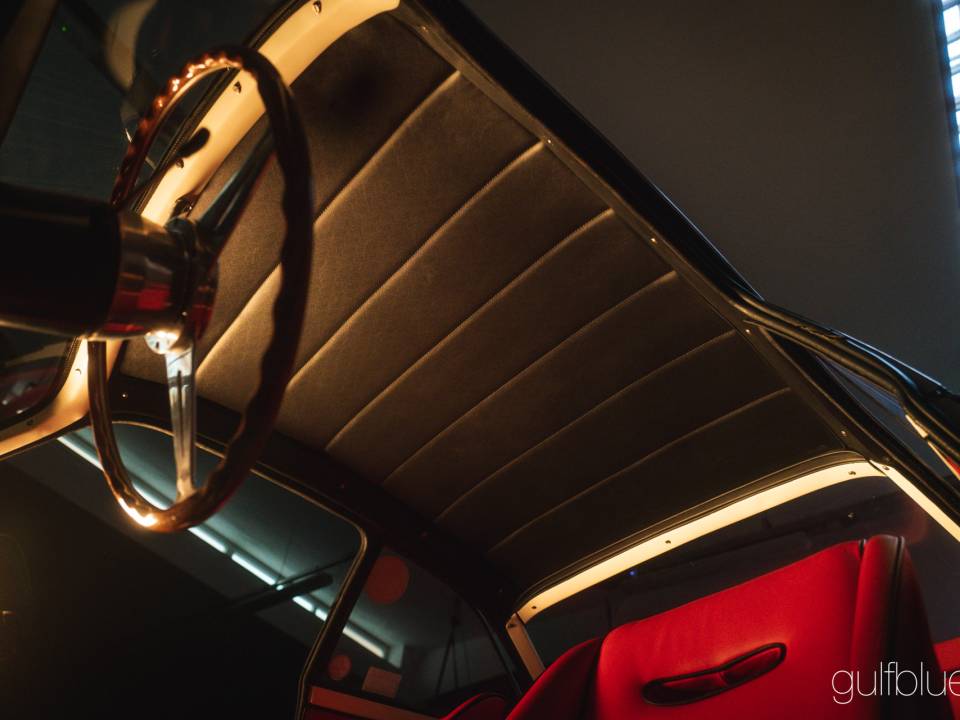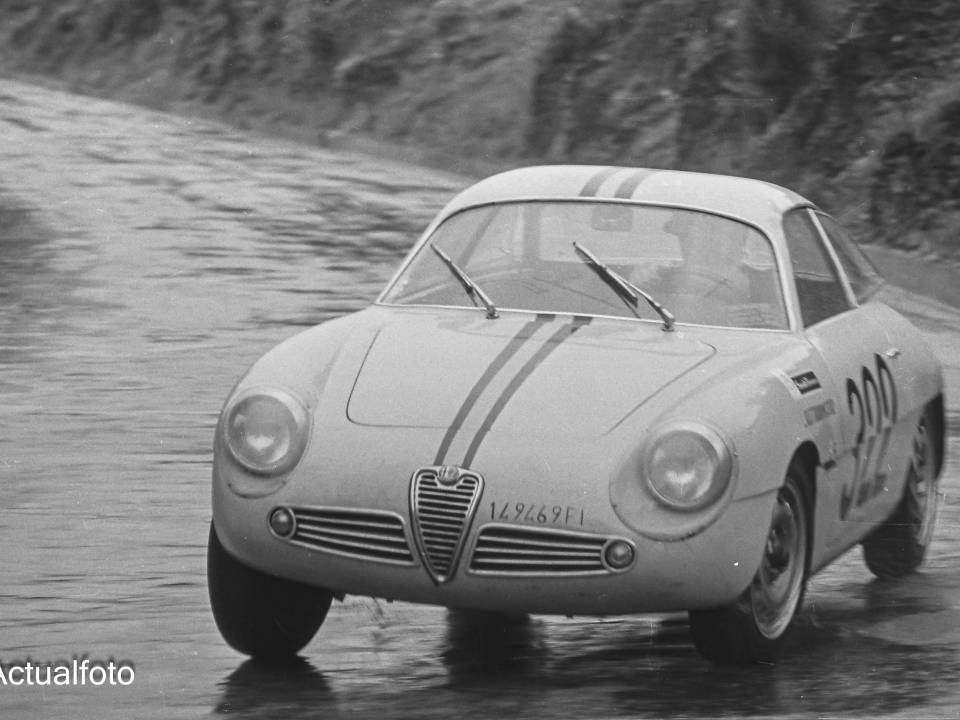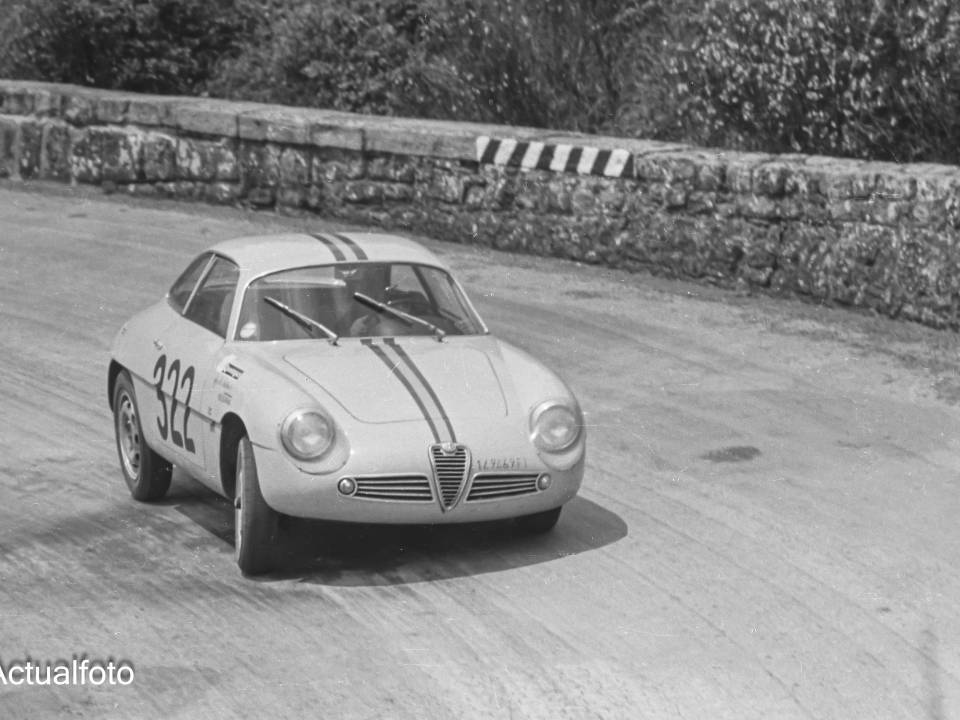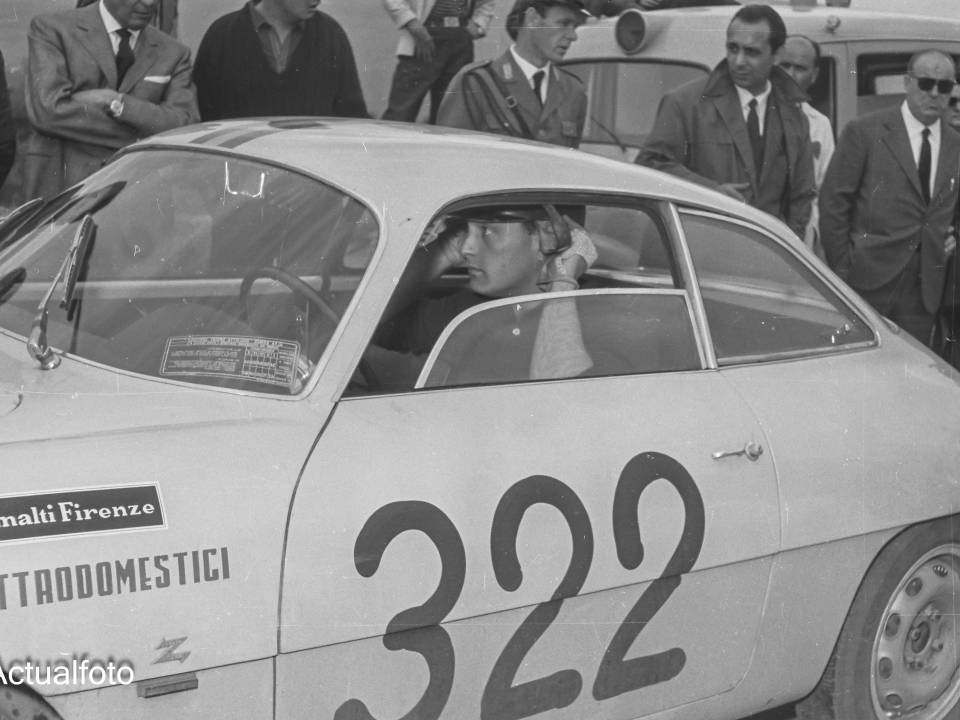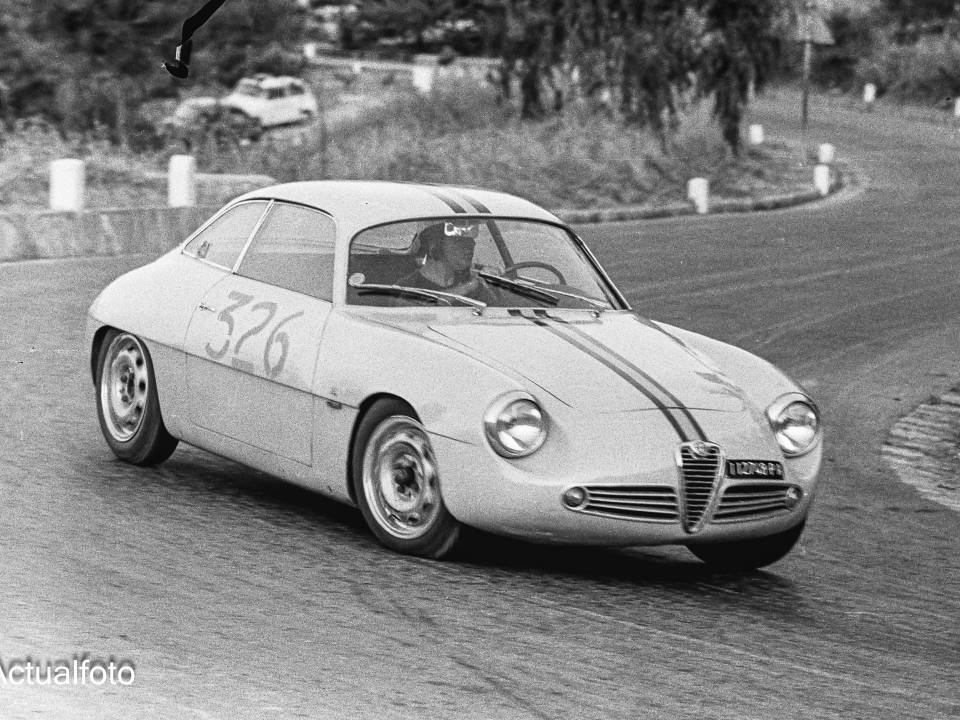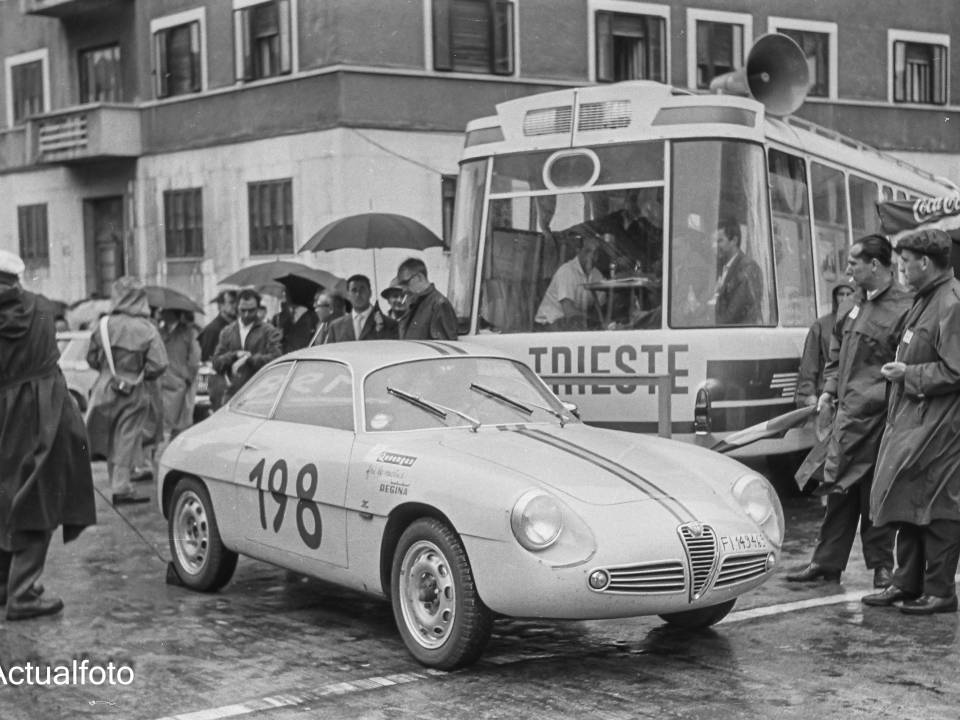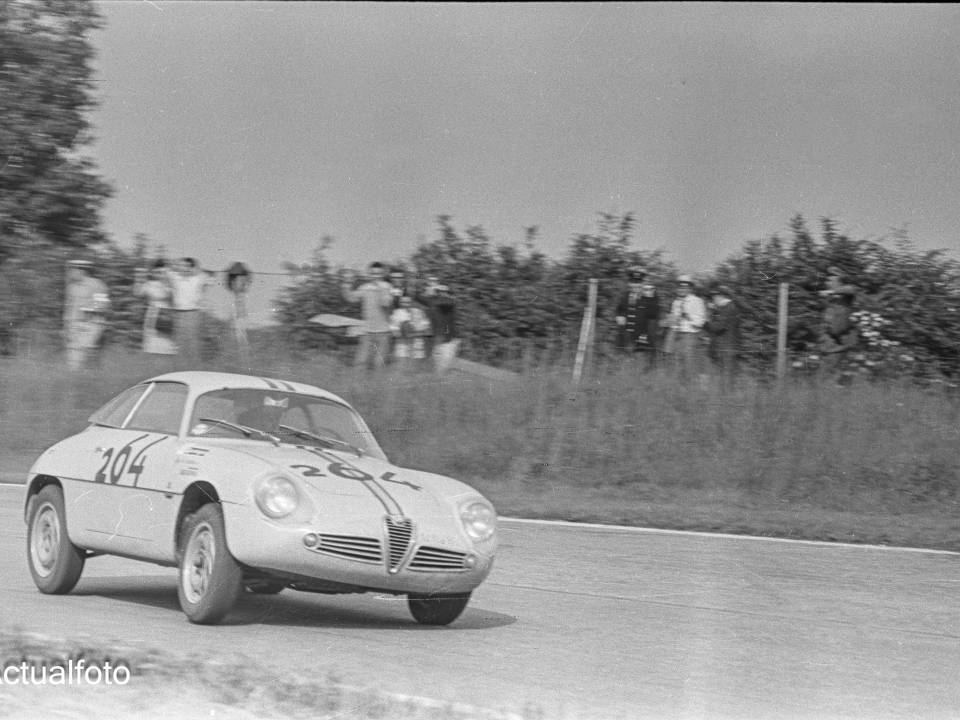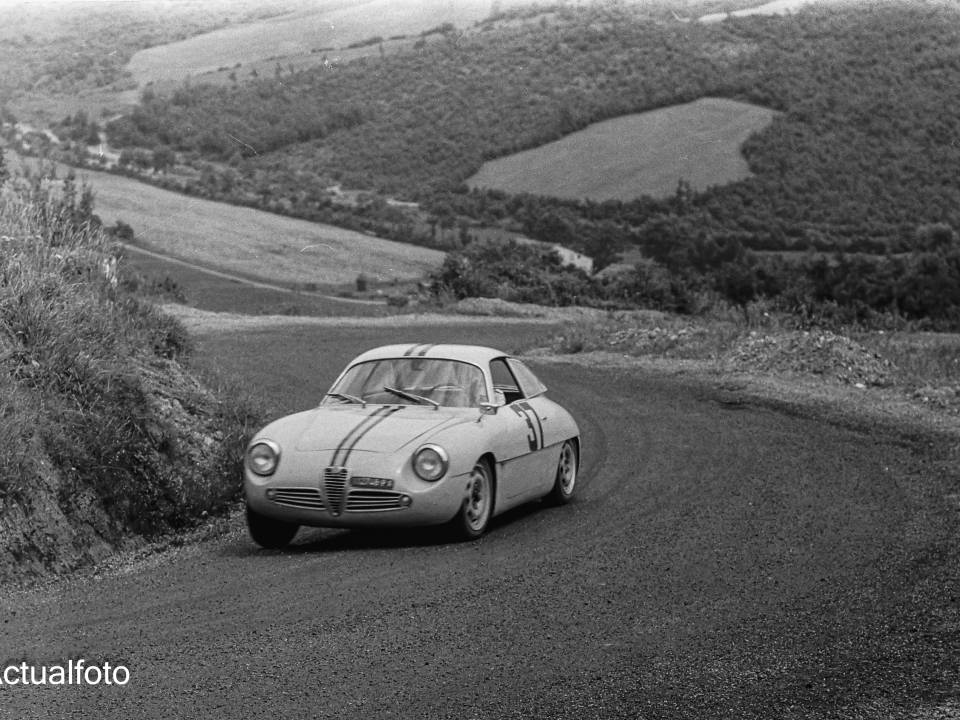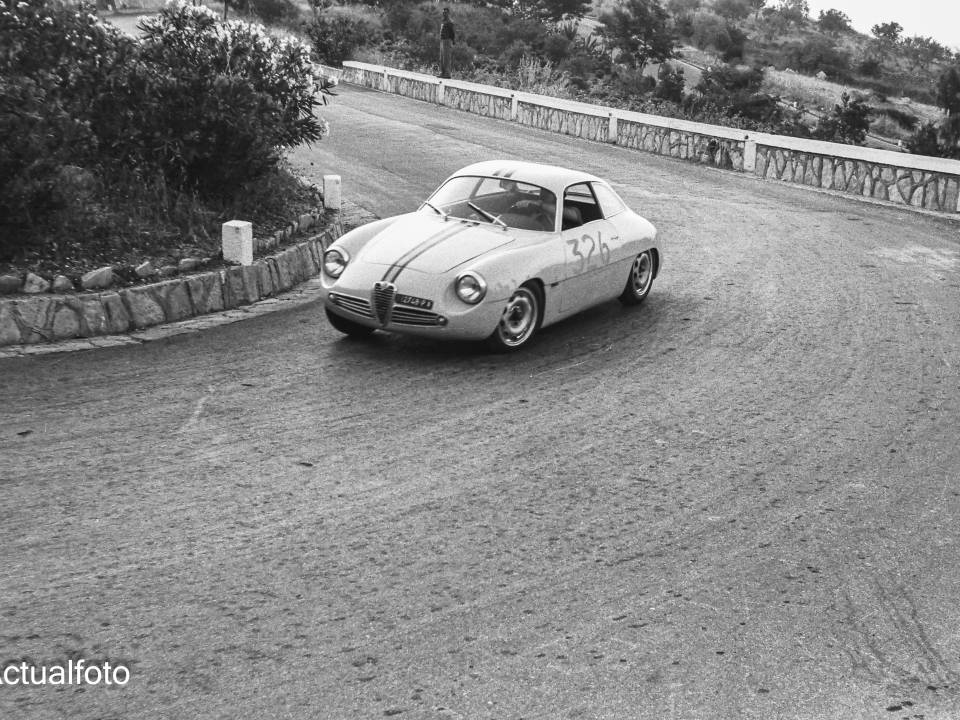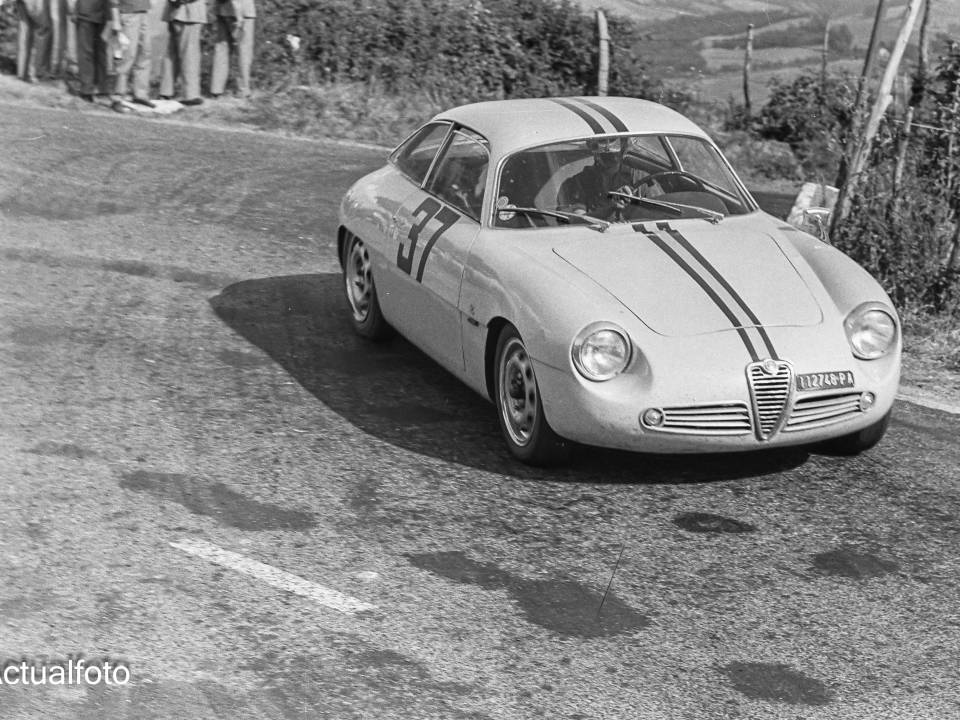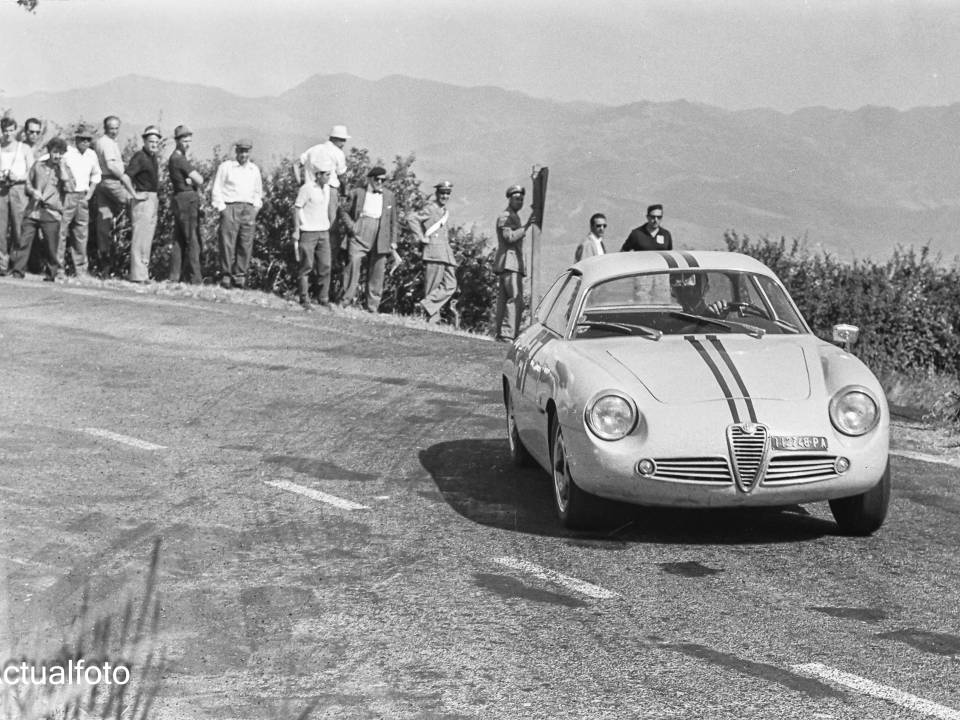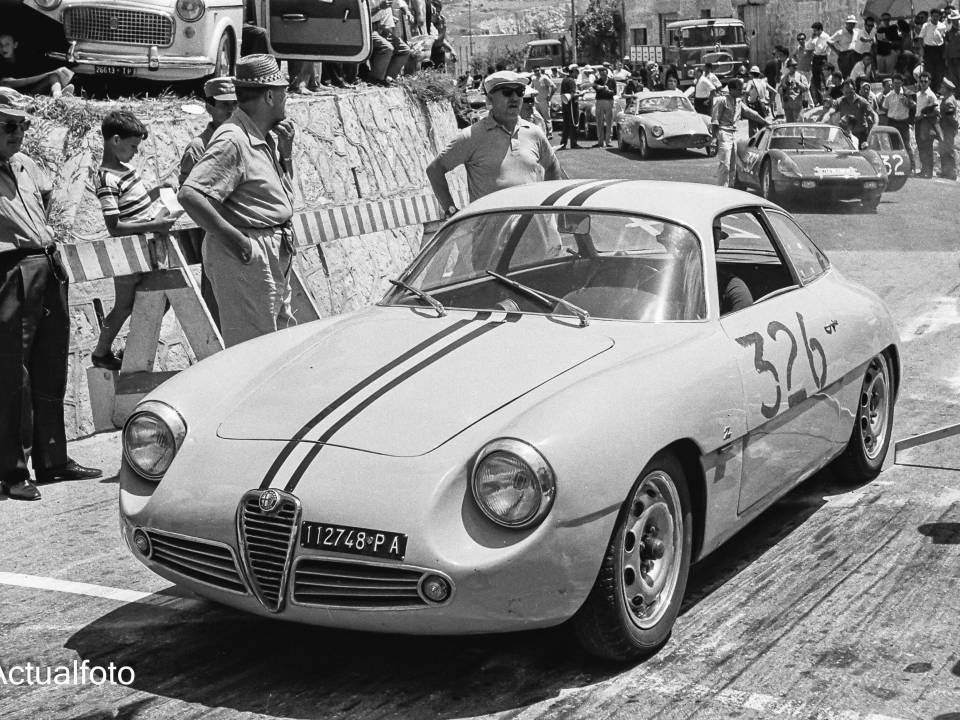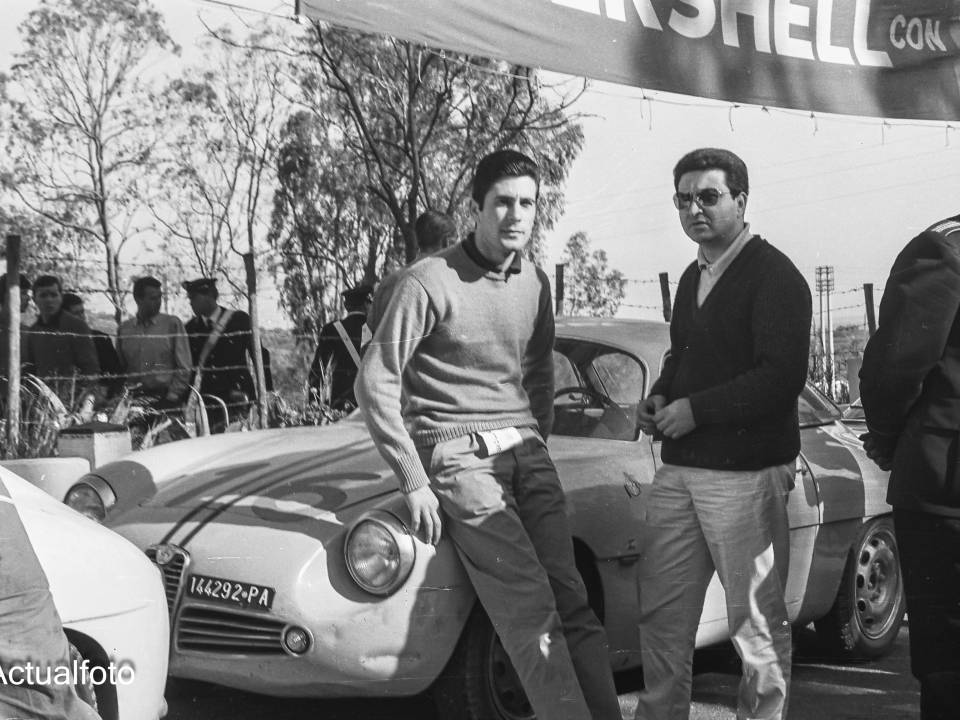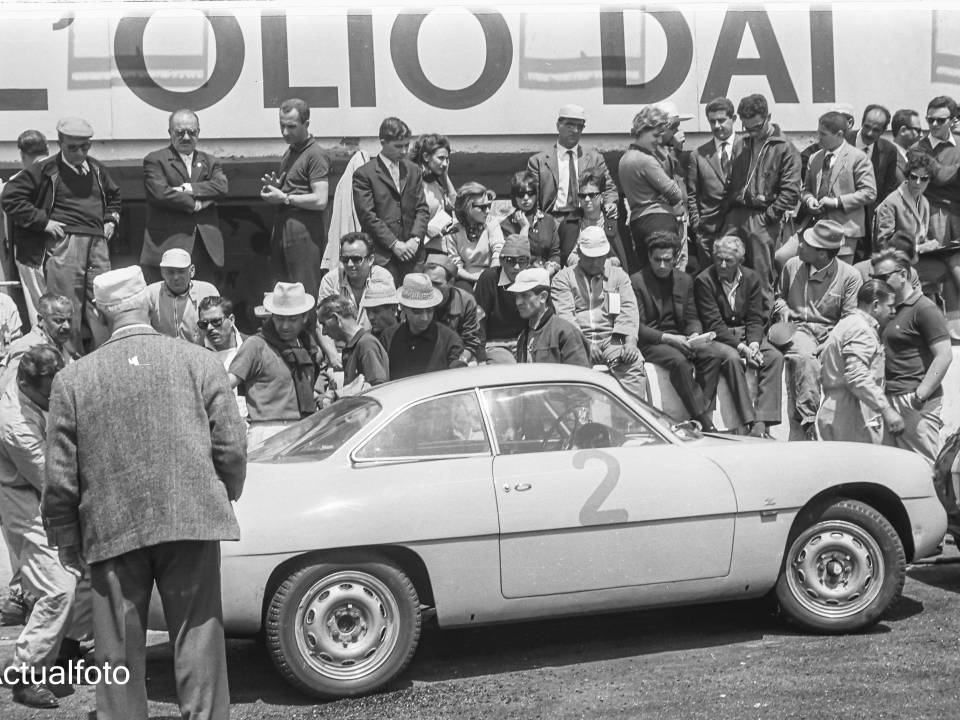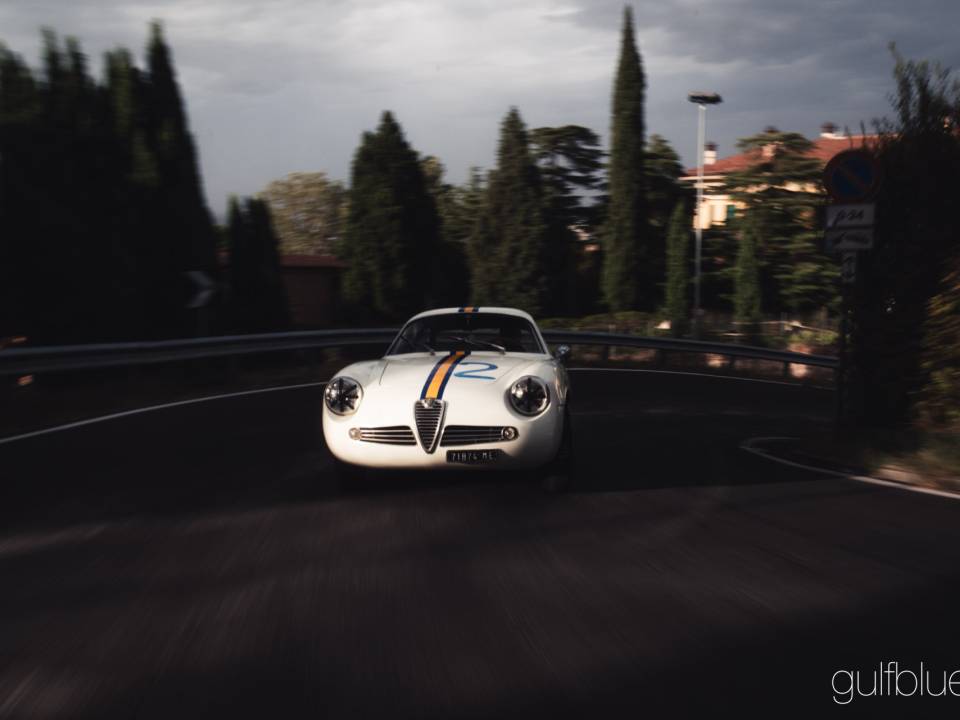1961 | Alfa Romeo Giulietta SZ
Italiana da sempre, storia sportiva completa e documentata, restauro conservat
Italiana da sempre, storia sportiva completa e documentata, restauro conservat
Italiana da sempre, storia sportiva completa e documentata, restauro conservat
Descrizione
Perhaps looking at this car is more exciting than to drive it. We propose one of the 169 Alfa Romeo Giulietta SZ, produced on 27 January 1961 and sold to Sergio Sorbi's Smalti Firenze company on 31 March of the same year, just in time to debut at the end of June in the Coppa della Consuma with Adolfo Tedeschi at the wheel who won the Gran Turismo class up to 1300 with the colors of the famous Scuderia Biondetti.
Tedeschi also ran the Trieste Opicina, the same year but without a good result due to the arrival of rain; paired with Piero Frescobaldi, Tedeschi ran the Ascari Trophy in Monza, finishing 6' in class.
After a short period in the hands of Ilfo Minzoni, in 1963, just enough to win the class at the Vergato-Cereglio hill-climb, the SZ moved to warm Sicily, in the hands of Emanuele Trapani from Palermo to enter the Targa Florio, teamed with Nicolò Lombardo with the colors of Scuderia Pegaso.
In 1964, the car was purchased by Antonino di Salvo who first ran the Mugello Road Circuit, finishing 3rd in class, then the Targa Florio together with Franco Tagliavia, where, however, he was forced to retire; the fortune was different for Giuliano Savona who used the car in '64 to race the Trapani-Monte Erice, finishing in 6th place in his class.
In 1965 the new owner Francesco Santoro, paired with Vincenzo Mirto Randazzo attended the Targa Florio again: unfortunately they were forced to retire on the 6th lap. In the same year the car acquired the current Messina license plate.
Ownership changes followed in 1969, 1970 and 1979 before arriving in the hands of the current owner in 1988, in need of work and painted red, instead of the original white.
After a long period of non-use and a restoration that lasted over the years, in 2011 the car was put back into circulation, brought back to its original conditions with the livery used at the time: yellow line in the center of two blue lines. During the restoration the owner tried to preserve as much as possible, with an eye on performance thanks to the 00120 engine prepared and balanced with an exhaust capable of warming the heart, with its strong tone.
It is one of the few SZs with a complete history traced from the first to the last day.
Since the end of the restoration, the car took part in various events and revivals, including the centenary of the Targa Florio in 2016.
Equipped with an ACI Sport Regularity passport, Alfa Romeo certificate of origin and sporting documentation, this SZ represents a piece of 1960s racing history, in which gentleman drivers could race on equal terms with much more prestigious cars.
The car could be seen by appointment in Bologna.
Below is the racing history:
• Coppa della Consuma 1961, Adolfo Tedeschi, Scuderia Biondetti, number 322, 1st in class;
• Trieste Opicina 1961, Adolfo Tedeschi, Scuderia Biondetti, number 198, 9' in class (rain);
• Ascari Monza Trophy 1961, Adolfo Tedeschi – Piero Frescobaldi, number 264, 6th Class;
• Vergato Cereglio 1963, Ilfo Minzoni, Scuderia Biondetti, number 120, 1st Class;
• Targa Florio 1963, Emanuele Trapani – Nicolò Lombardo, number 6, rit. 2nd round;
• Mugello Road Circuit 1964, Di Salvo Antonino, Scuderia Pegaso, number 37, 13th overall, 3rd class;
• Trapani Monte Erice 1964, Giuliano Savona, Scuderia Pegaso, number 326, 6' in class;
• Targa Florio 1964, Franco Tagliavia – Antonino di Salvo, Scuderia Pegaso, number 2, ret.;
• Targa Florio 1965, Vincenzo Mirto Randazzo – Francesco Santoro, Scuderia Pegaso, number 16, ret 6th lap;
Historical notes (from "Alfa Romeo - Le vetture di produzione"; Tabucchi, d'Amico):
Carrozzeria Zagato was provided with Giulietta SS floorpans by Alfa Romeo and prepared 169 examples of the SZ coupé (SZ standing for Sprint Zagato).
Thanks to its high performance and competition pedigree, this car was a great success and represented a launching pad for the best Italian "gentleman drivers" many of whom subsequently turned professional.
The small Zagato coupés were therefore largely destined for competition use.
The SZ achieved innumerable results of note and was the protagonist in countless exploits in which, in spite of being to all intents and purposes standard production model, it managed to get the better of cars with much larger engines and competition specifications.
While the tenth place overall in the 1962 edition of the Le Mans 24 Hours was an
undoubtedly prestigious result, the seventh overall in the '62 Targa Florio, just a few minutes behind the winning Ferrari GTOs, and the ninth place the following year in front of a GTO and a Porsche RS, took the SZ onto a plane that the manufacturer could hardly have imagined possible.
As the rolling chassis were identical to those of the Sprint Speciale, the notes relating to the engines of 1959 model are valid here too; it can therefore be established that up to SZ No. 00060, first series engines were fitted that were virtually identical to the type 1315 units of the Sprint Veloce and the Spider Veloce. There was only one variation in that the height of the crankcase and the cylinder liners was reduced by 0.75 mm in order to raise the compression ratio.
As a means of increasing performance, this solution avoided the conventional practice of skimming the cylinder head which inevitably alters the combustion chamber configuration and is in part counter productive.
The SZ was used as a mobile test-bed for the three-shoe front brakes eventually adopted as standard equipment. The new arrangement also involved the transfer of the conventional front brake units to the rear axle.
In 1961, during the progressive development of the car, in collaboration with the Servizio Esperienze Speciali and the young designer Ercole Spada recently engaged by the coachbuilder, Zagato prepared a short tail version based on the aerodynamic theories of kamm. Compared with the first series the new car was lower, the headlights were jaired in with Plexiglas covers, the glass area was revised and the tail introduced the shape subsequently developed with the Giulia TZ.
The last example of the SZ was delivered to the racing driver Carlo Facetti on the 28th of January, 1963.
Dettagli del veicolo
Dati veicolo
- Marca
- Alfa Romeo
- Serie di modelli
- Giulietta
- Modello
- Giulietta SZ
- Prima immatricolazione
- Non fornito
- Anno di fabbricazione
- 1961
- Chilometraggio
- Numero di telaio
- Non fornito
- Numero del motore
- Non fornito
- Numero del cambio
- Non fornito
- Matching numbers
- NO
- Numero di proprietari
- Non fornito
Dettagli tecnici
- Tipo carrozzeria
- Coupe
- Potenza (kW/CV)
- 74/100
- Cilindrata (cm³)
- 1290
- Cilindri
- 4
- Porte
- 2
- Posizione volante
- Sinistra
- Cambio
- Manuale
- Marce
- Non fornito
- Trazione
- Posteriore
- Freno anteriore
- Non fornito
- Freno posteriore
- Non fornito
- Carburante
- Benzina
Configurazione individuale
- Colore carrozzeria
- Bianco
- Nome colore produttore
- Bianco Alfa
- Colore interni
- Rosso
- Materiale interni
- Pelle
Condizione, registrazione e documentazione
- Condizioni
- Restaurato
- Ha un rapporto
- Non fornito
- Condizione
- Rapporto di ispezione dell'ordine
- Revisione
- Targa storica
- Immatricolato
- Pronta a partire
